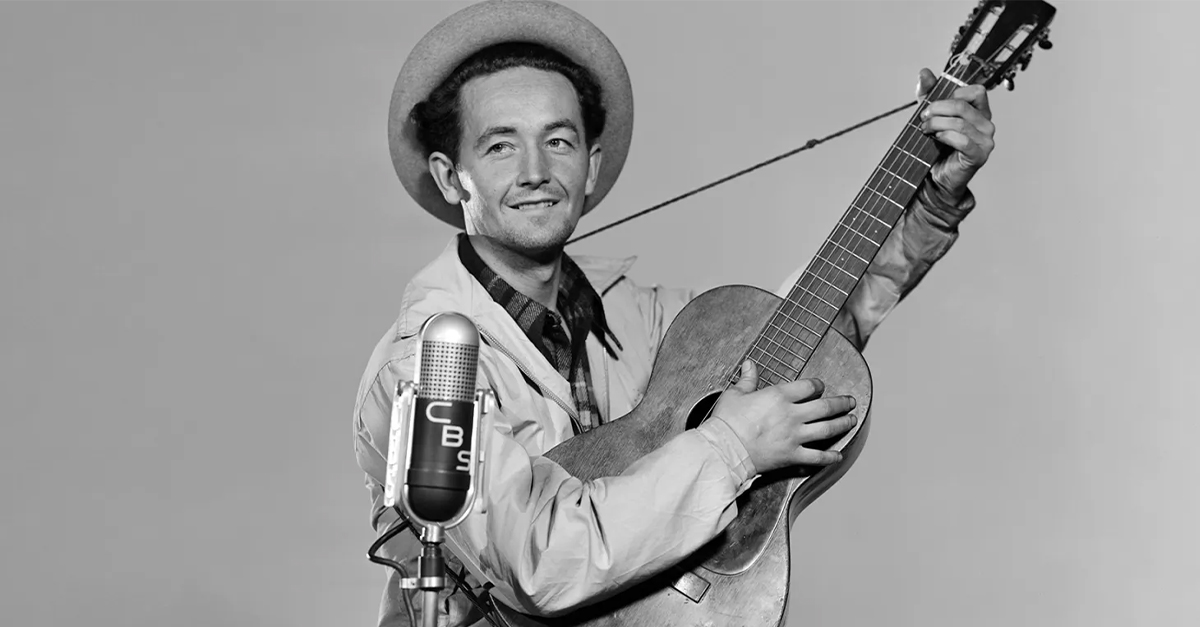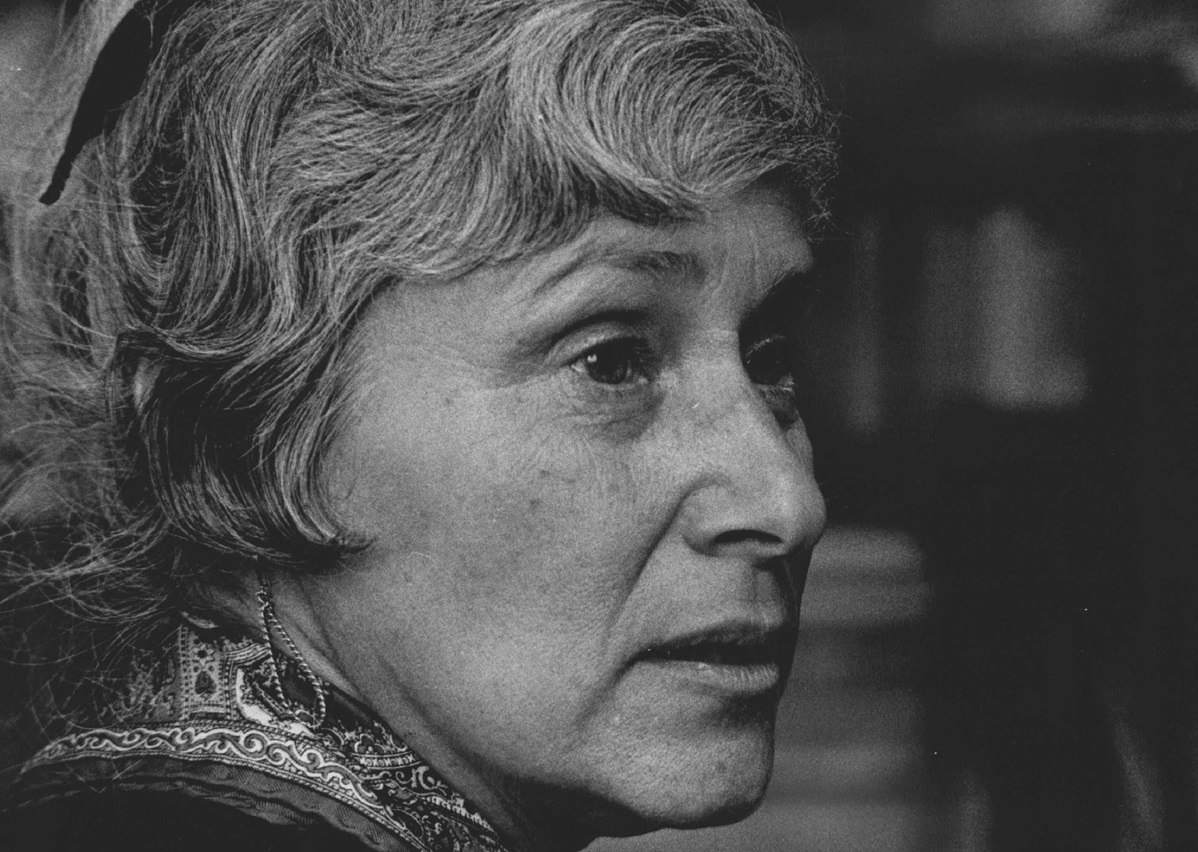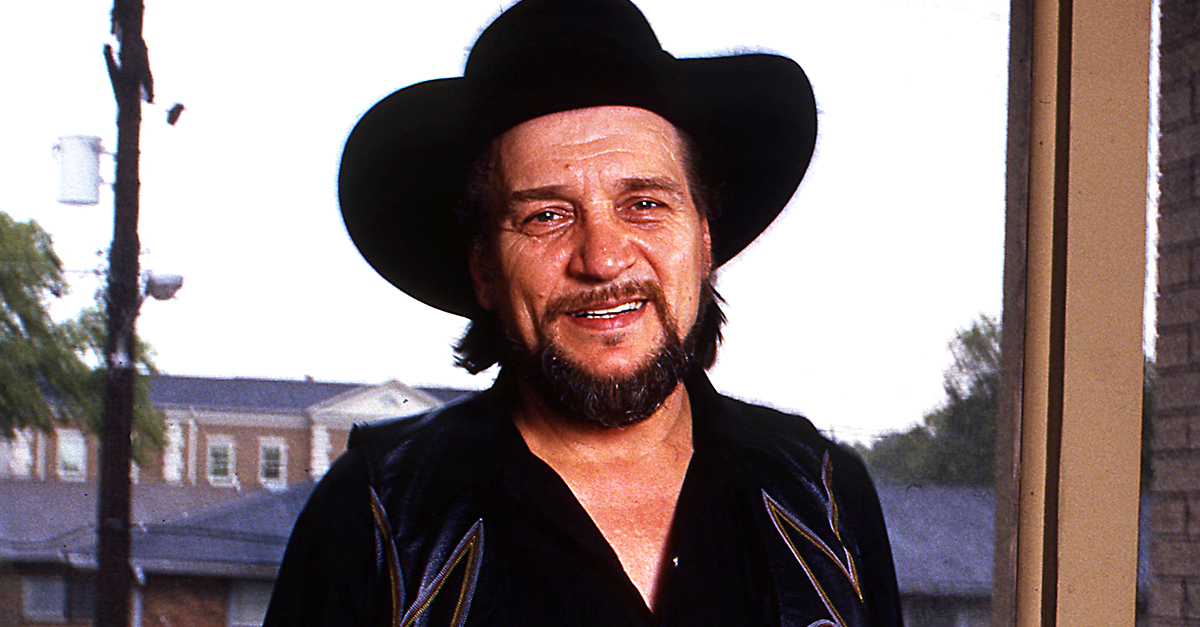The Dust Bowl Troubadour Who Revived Folk Music
He travelled a hard dusty road, singing songs of protest against the injustice he saw around him. Overcoming early adversity, Woody Guthrie inspired future generations of folk musicians with his memorable songs and love of the common people. But just as Guthrie started to leave his early struggles behind, he would face the most terrible struggle of all. 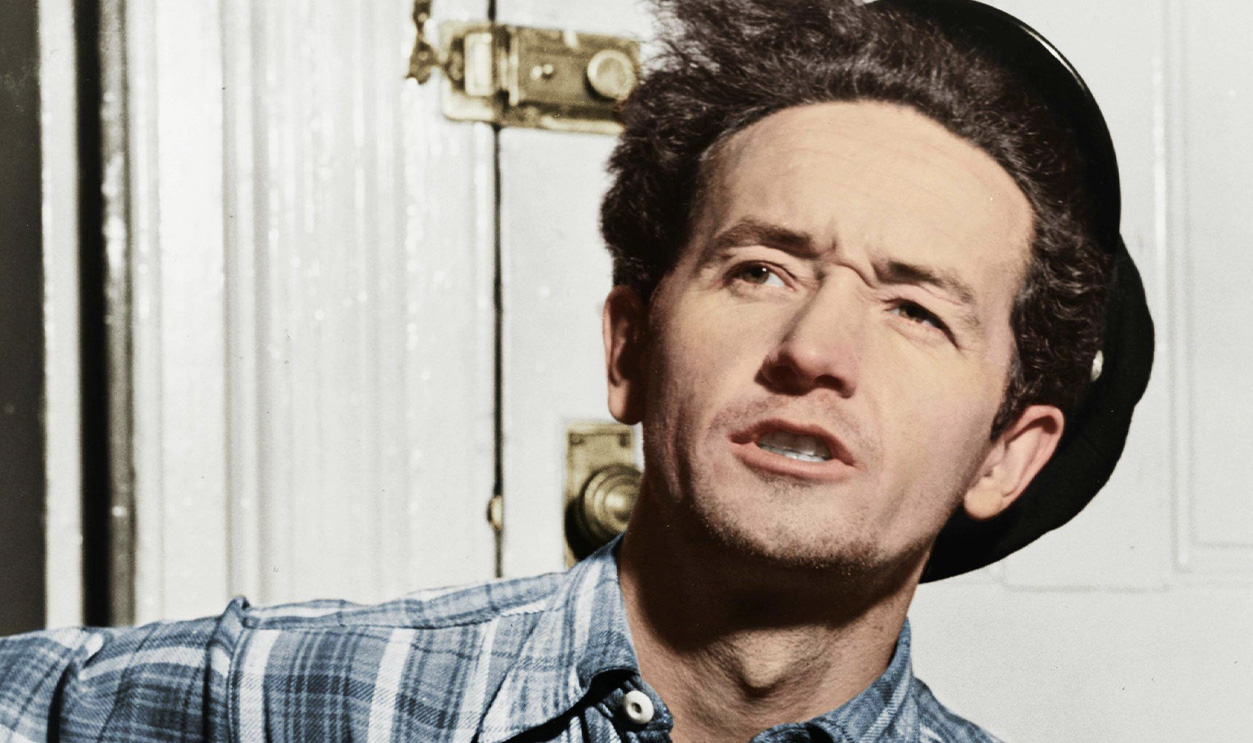
1. His Name Was Presidential
Woodrow Wilson Guthrie was born July 14, 1912 in Okemah, Oklahoma. His parents, Charley and Nora Guthrie, named the child after presidential candidate Woodrow Wilson, who would be elected later that year. While the name reflected mainstream Democratic party politics, Guthrie’s father’s political activities would soon take a sinister turn.
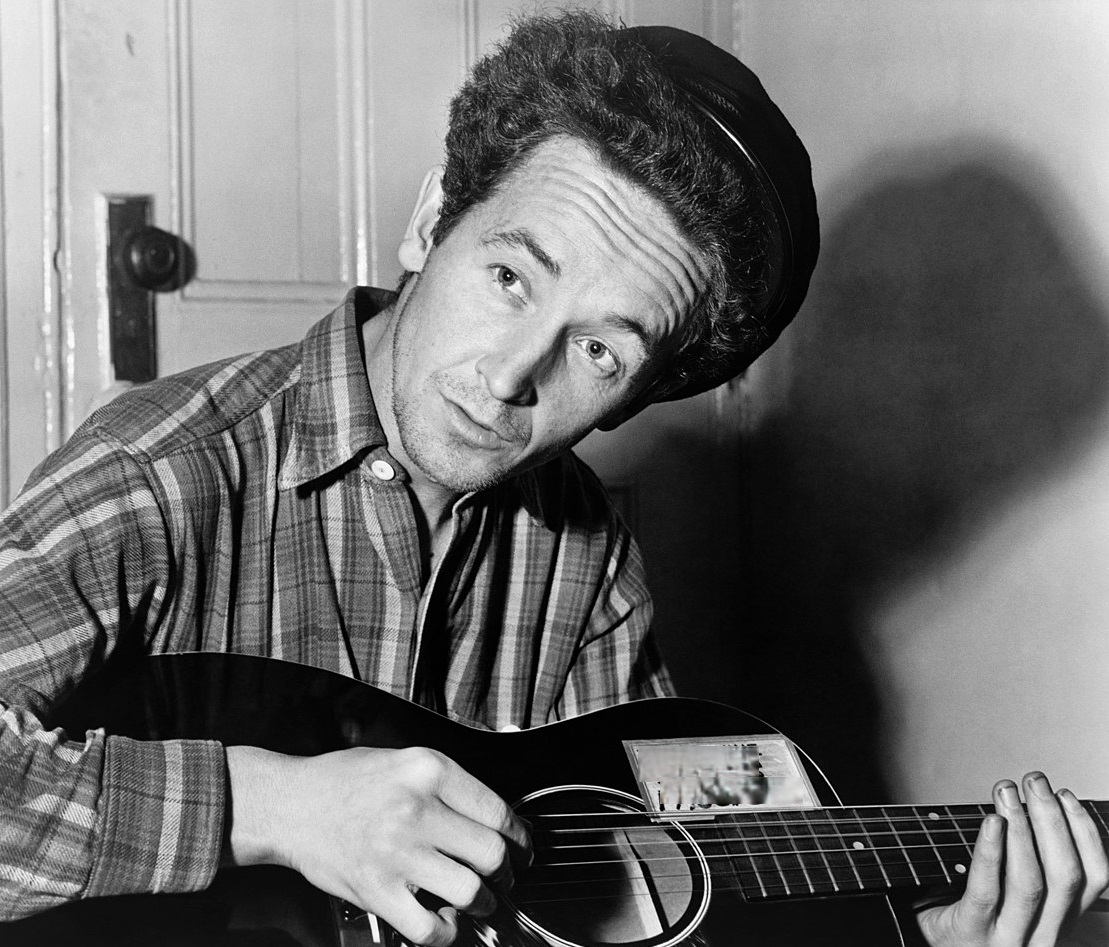 Al Aumuller, Wikimedia Commons
Al Aumuller, Wikimedia Commons
2. His Dad Was A Klansman
While Charley Guthrie was a successful land developer by day, he was a member of the Ku Klux Klan by night, joining the organization in 1915. He had even been present at a lynching back in 1911. With Jim Crow laws in force in Oklahoma, and the Klan terrorizing the area’s Black people, the young Woody Guthrie was a witness to the prejudice of his surroundings. Other traumatic events would shape the lad for years to come.
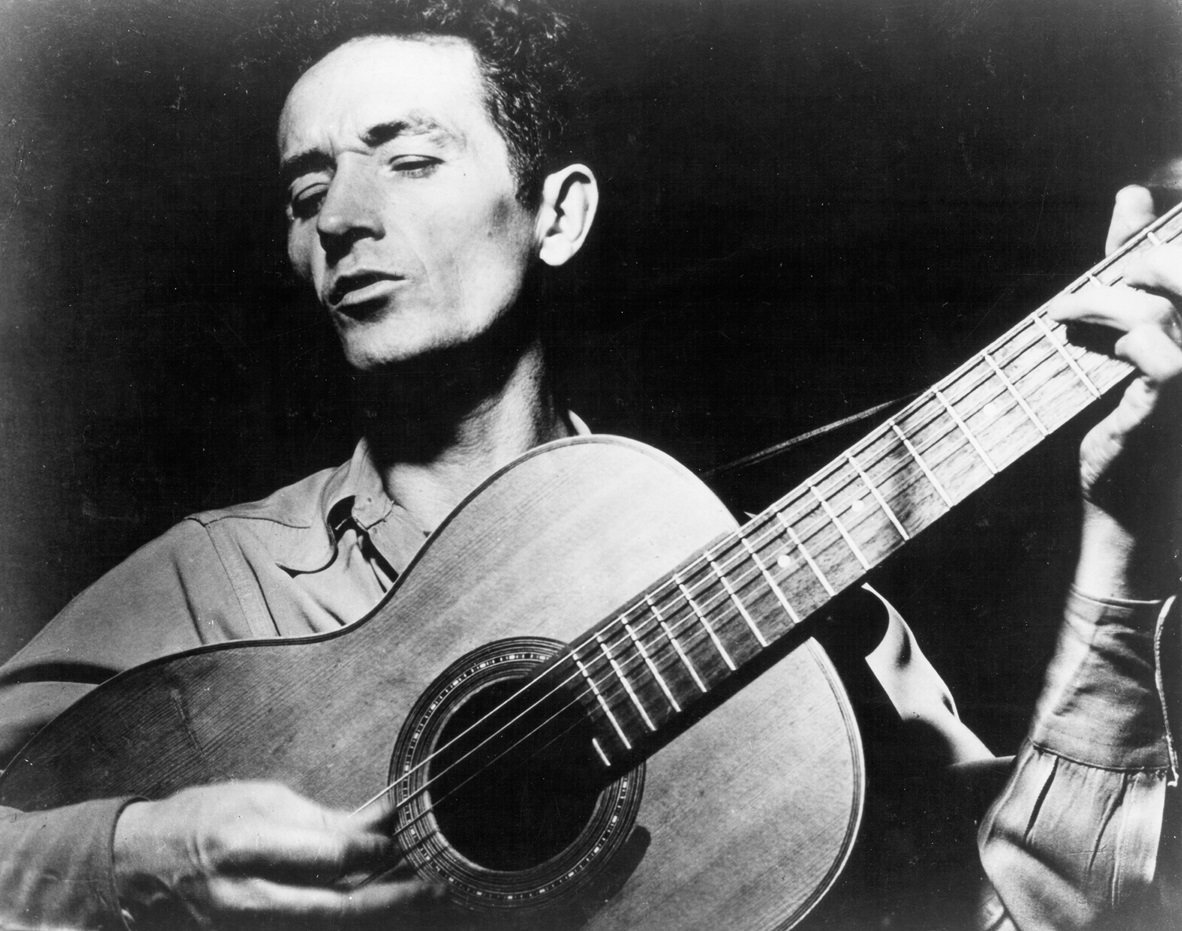 Michael Ochs Archives, Getty Images
Michael Ochs Archives, Getty Images
3. He Lost His Sister
When Guthrie was seven, his older sister Clara set her own clothes on fire during a fight with their mother. Lying on her bed, the horribly burned older girl told Guthrie not to cry, that she would be fine. But she was too far gone. The young Woody Guthrie was devastated. Meanwhile, the family’s financial fortunes were in steep decline.
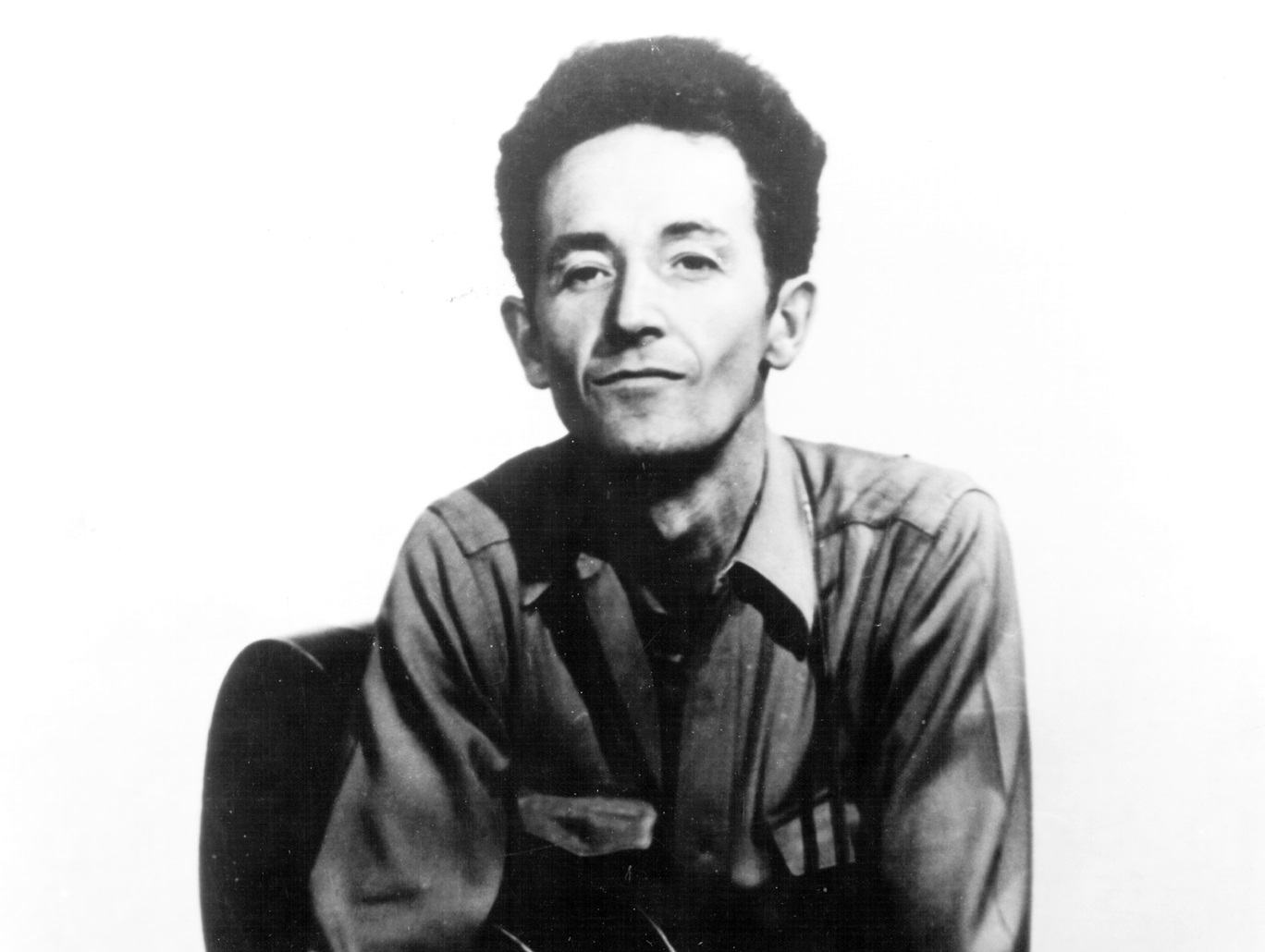 Michael Ochs Archives, Getty Images
Michael Ochs Archives, Getty Images
4. His Father Lost His Shirt
Guthrie’s father had already lost most of the family’s wealth in a string of bad real estate deals. Hemorrhaging money by the day and himself badly burned in yet another fire, Charley went to recuperate with relatives in the Texas Panhandle town of Pampa, leaving Guthrie and his older brother Roy with their mother. While the two teenage boys ran wild, their mother went straight over the edge into the abyss.
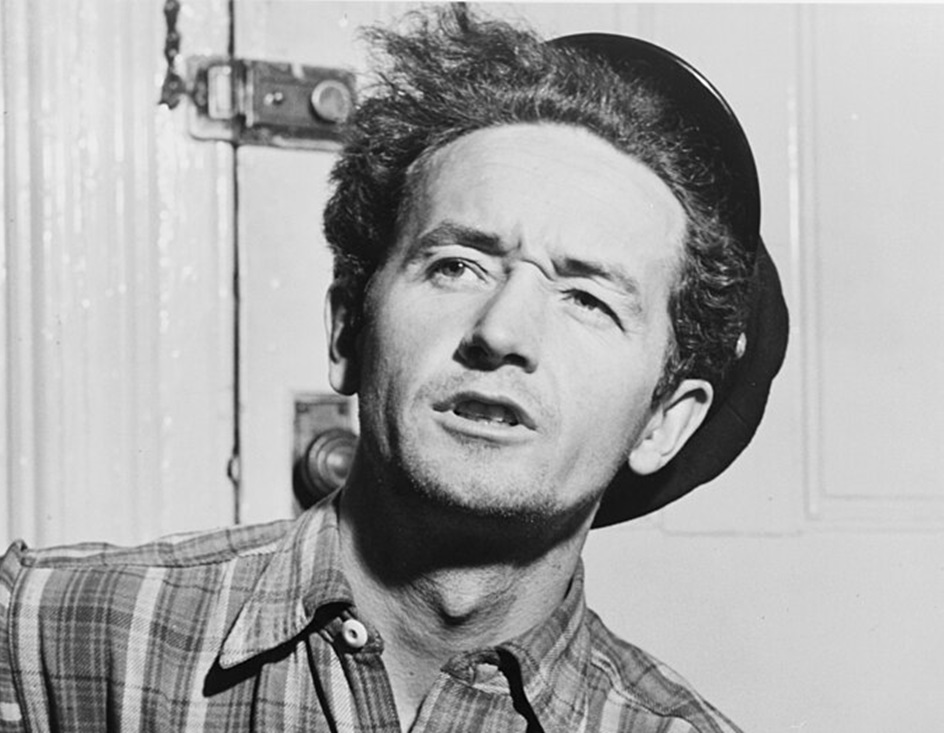 Al Aumuller, Wikimedia Commons
Al Aumuller, Wikimedia Commons
5. His Mother Was Taken Away
Guthrie’s mother Nora had shown signs of mental illness for years. The loss of her daughter only made things worse. Her erratic behavior and loss of muscle control led to her being committed to a psychiatric hospital when Guthrie was 14. Her symptoms are now known as Huntington’s disease, but all anyone understood at the time was that she’d lost her mind. With their father in Texas and their mother institutionalized, Guthrie and his brother were on their own.
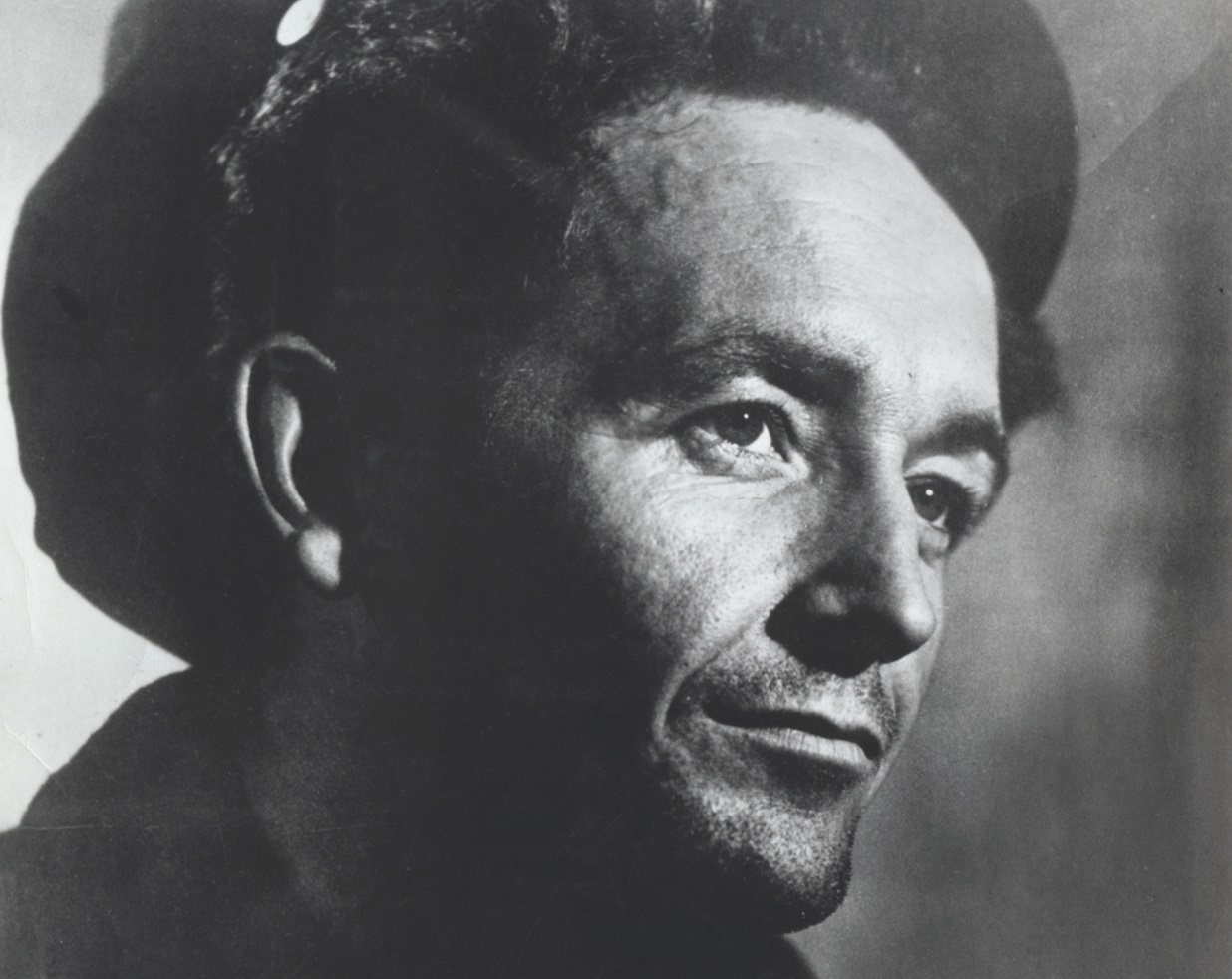 John Springer Collection, Getty Images
John Springer Collection, Getty Images
6. He Found Music
Left to his own devices, Guthrie hitchhiked around the area doing odd jobs. In Okemah, he befriended a Black shoeshine boy named George who played blues on the harmonica. Guthrie was soon hooked on the instrument, and scraped together enough money to buy one for himself. The harmonica’s soulful sounds provided a welcome relief from worries about his uncertain future.
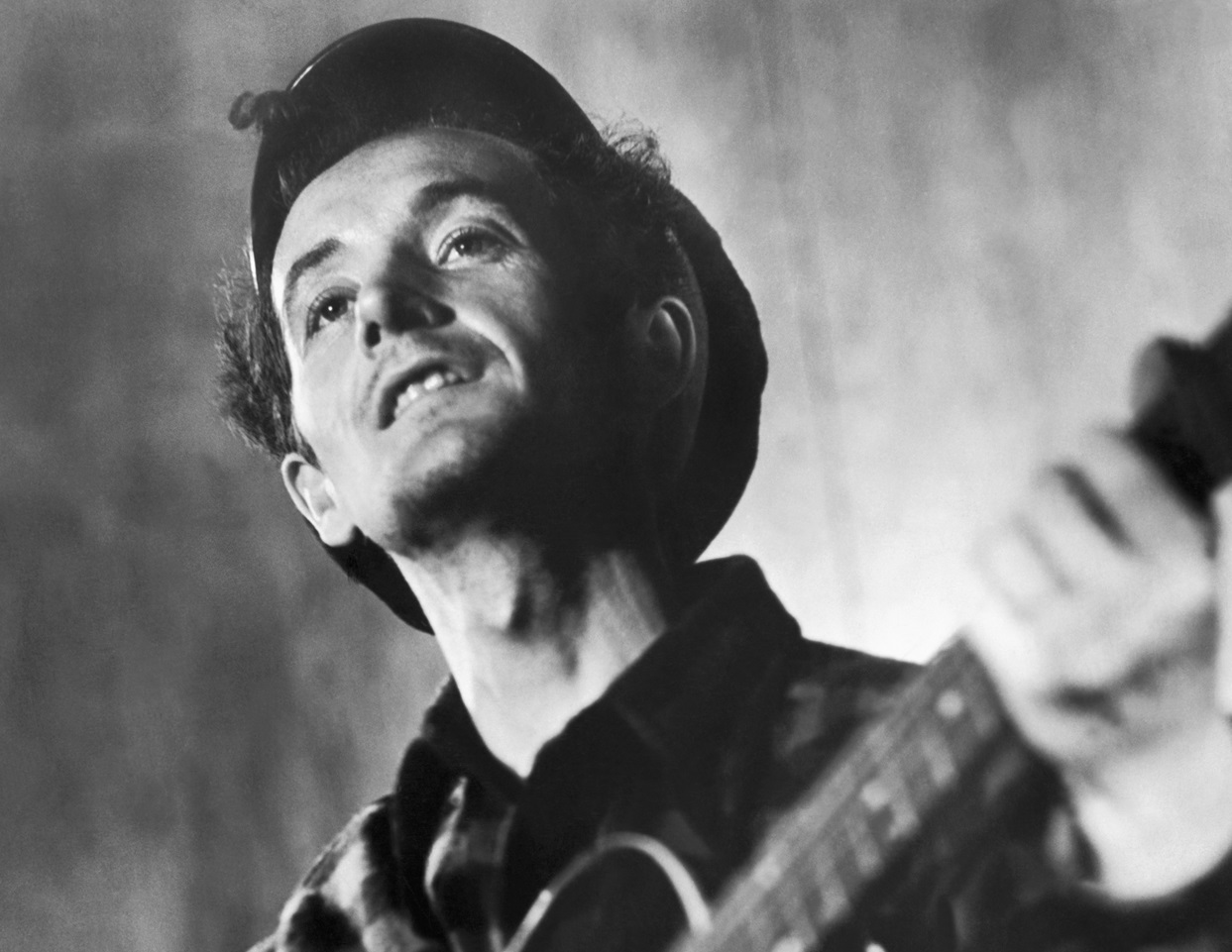 John Springer Collection, Getty Images
John Springer Collection, Getty Images
7. He Dropped Out
Though known as a bright student, Guthrie was more interested in his own self-directed reading. He also did some busking for passersby. Guthrie quit school with a year to go before graduation. Hoping a change of scenery would change his luck, he headed to Pampa to live with his father.
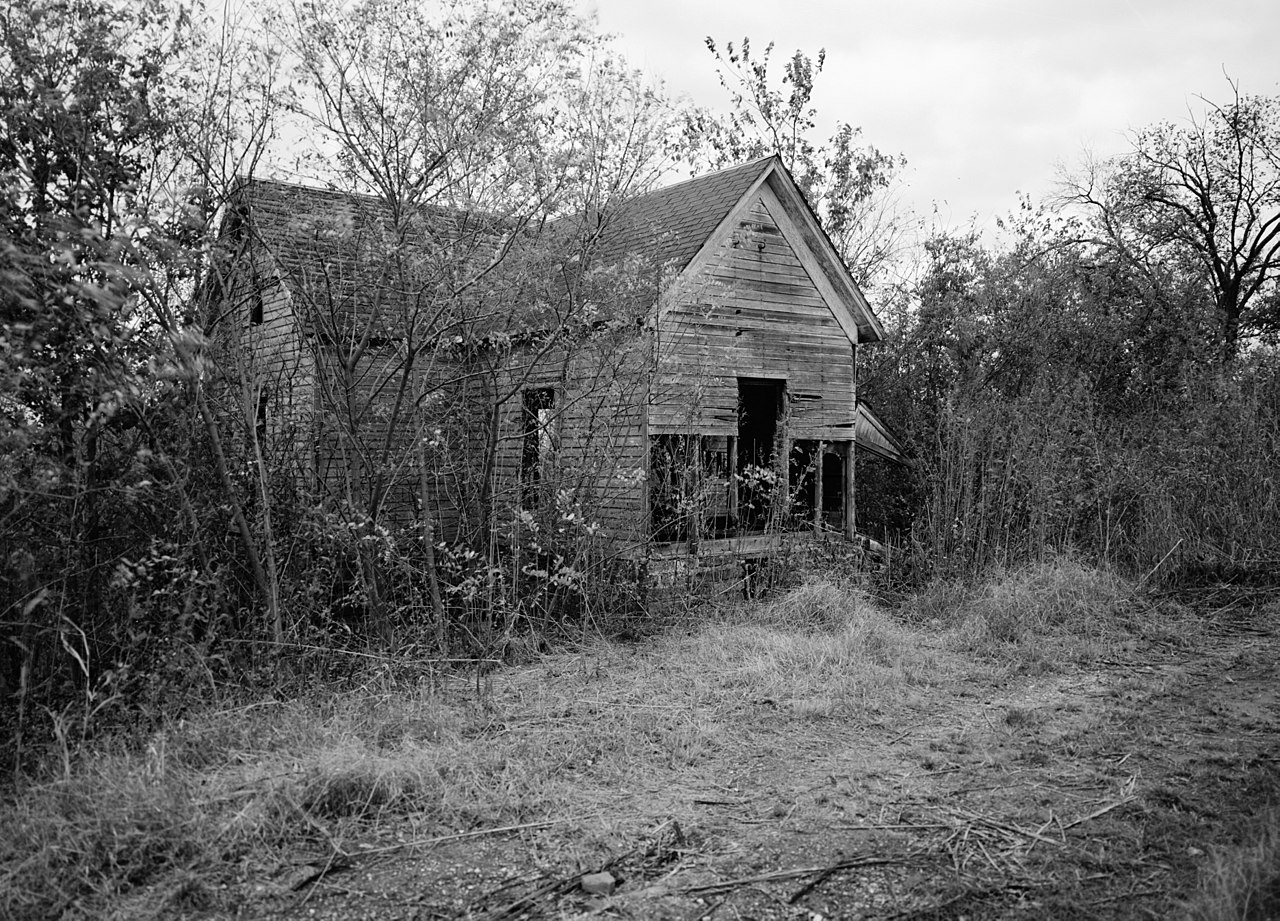 Walter Smalling, Wikimedia Commons
Walter Smalling, Wikimedia Commons
8. He Saw The Depression Hit
The worst depression of all time was setting in across the United States, and with the oil industry tanking, Texas was no exception. Sinking low from Charley’s bad land deals, the Guthries were one more family whose livelihood began to unravel. As the economy came unglued, even worse news hit.
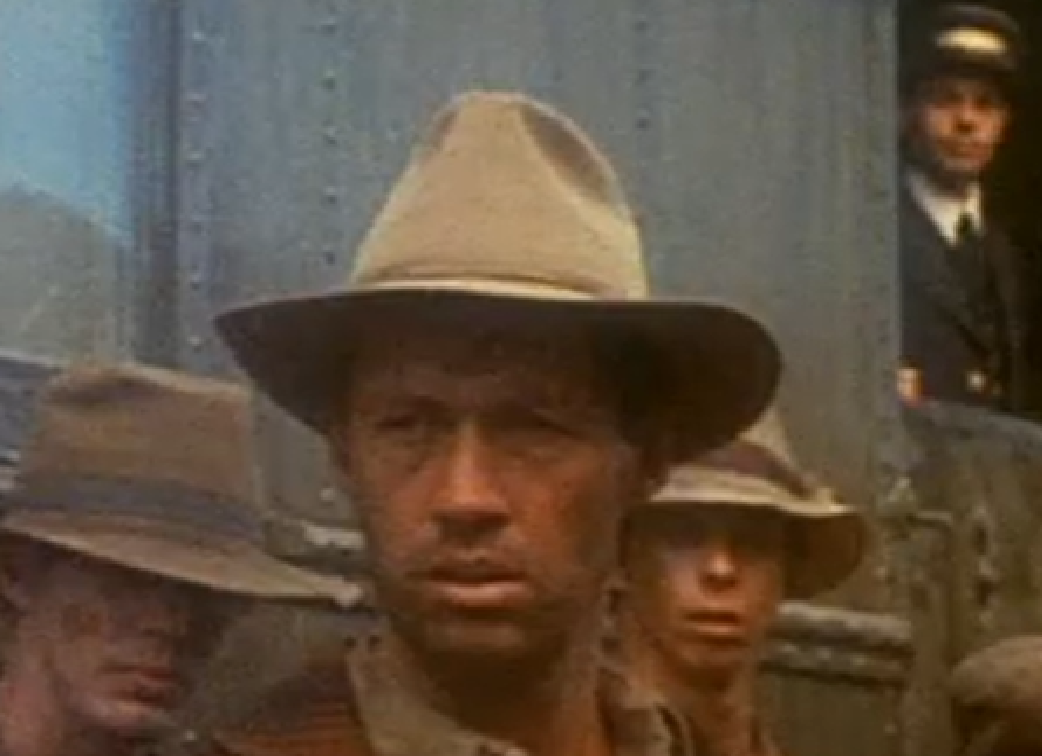 Bound for Glory, Bound for Glory (1976)
Bound for Glory, Bound for Glory (1976)

History's most fascinating stories and darkest secrets, delivered to your inbox daily.
9. He Lost His Mother For Good
Guthrie got news that his mother’s worsening symptoms had finally claimed her life. The realization that she’d never emerged from the psychiatric institution, and of how the community had stigmatized her, would haunt Guthrie for the rest of his life. In the meantime, he followed up on a promising new path.
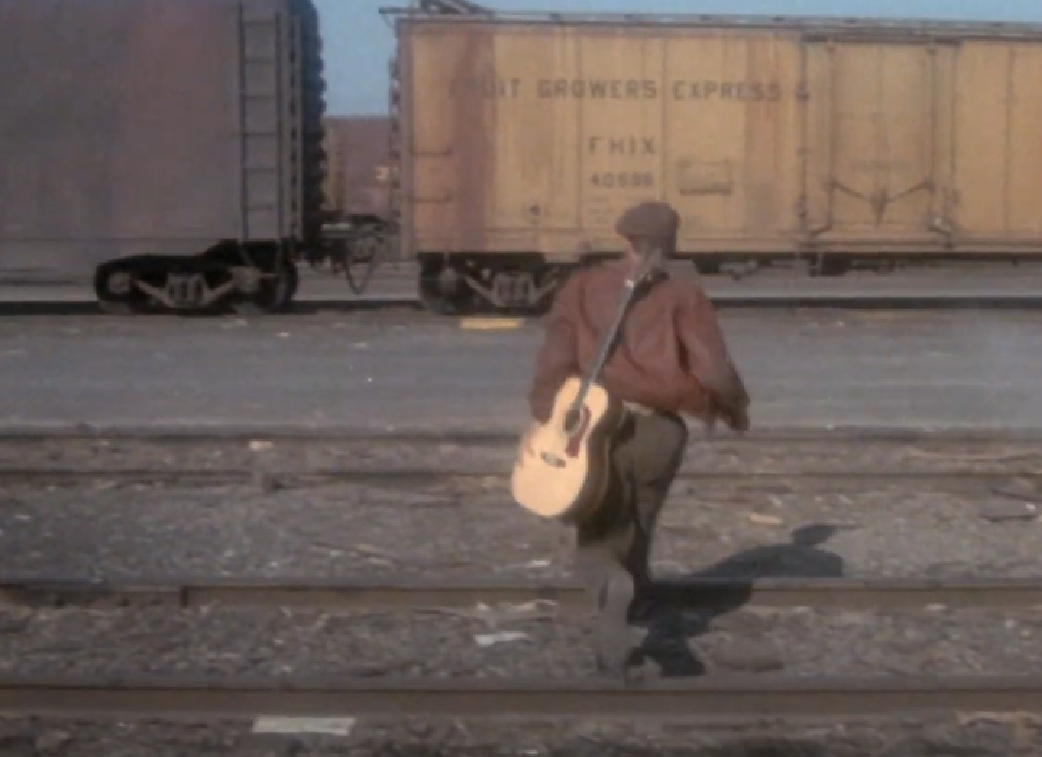 Bound for Glory, Bound for Glory (1976)
Bound for Glory, Bound for Glory (1976)
10. He Had A Teacher
Guthrie’s uncle, Jeff Guthrie, was a skilled musician who’d even won fiddling contests. He taught Guthrie how to play the guitar, mandolin, fiddle, and banjo. The two played gigs together at barn dances around the area. Knowing Jeff’s abilities far outshone his, Guthrie looked for more suitable musical partners.
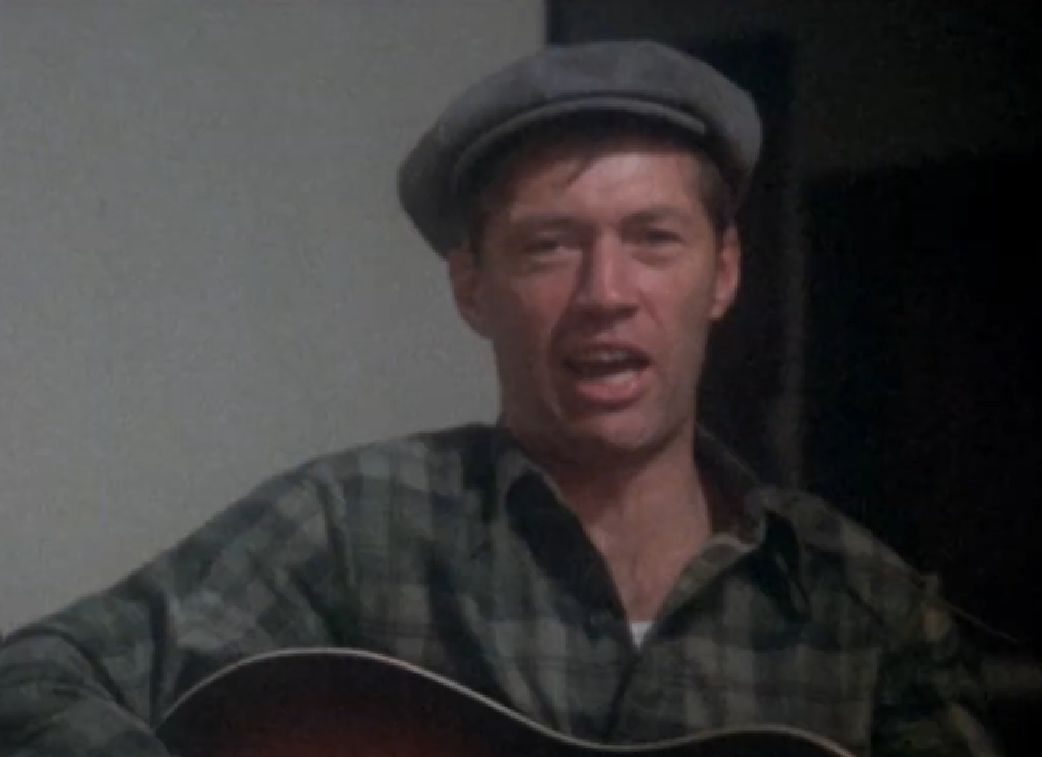 Bound for Glory, Bound for Glory (1976)
Bound for Glory, Bound for Glory (1976)
11. He Started His First Band
Guthrie formed his first band with Matt Jennings and Cluster Baker: The Corn Cob Trio. They would later rename themselves The Pampa Junior Chamber of Commerce Band. While he thought his new bandmates were pretty good, Guthrie really had his eye on Jennings’ younger sister, Mary.
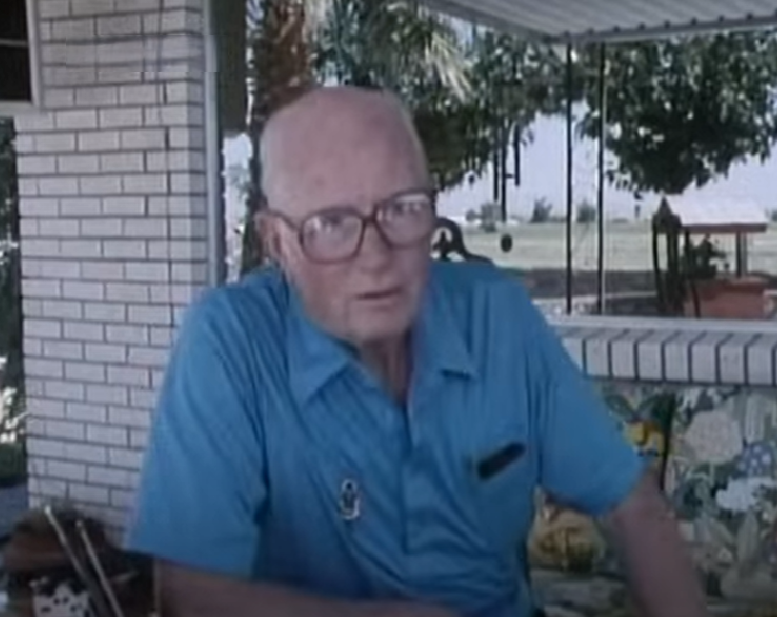 BBC Arena - Woody Guthrie (1988)
BBC Arena - Woody Guthrie (1988)
12. She Was A Catch
Woody Guthrie fell in love with Mary Jennings and married her in 1933. From a stable family, Mary was considered a catch in the local community. The couple would have three kids in the next few years: Gwendolyn, Sue, and Bill. Unfortunately, Guthrie himself had never been stable, and any chance at having a normal family life was about to be swept away.
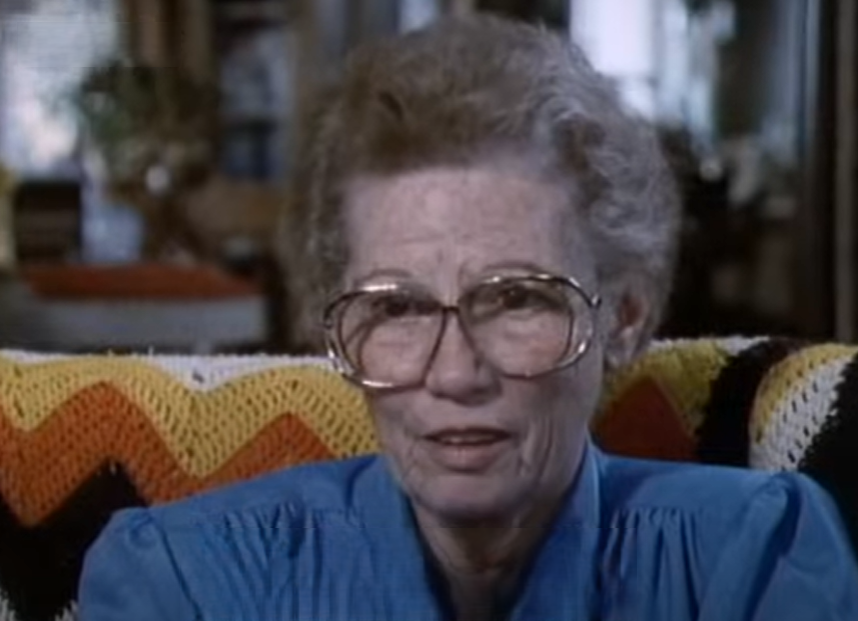 BBC Arena - Woody Guthrie (1988)
BBC Arena - Woody Guthrie (1988)
13. He Saw Dust Clouds Coming
It rose in clouds miles across, sifted under doorways, caused pneumonia, and blacked out the sun—the Dust Bowl had arrived in Pampa. Years of drought and poor farming practices meant that the topsoil simply disintegrated and blew away in the wind. With their property engulfed by suffocating windblown dust and the family in desperate straits, Guthrie headed west to find work.
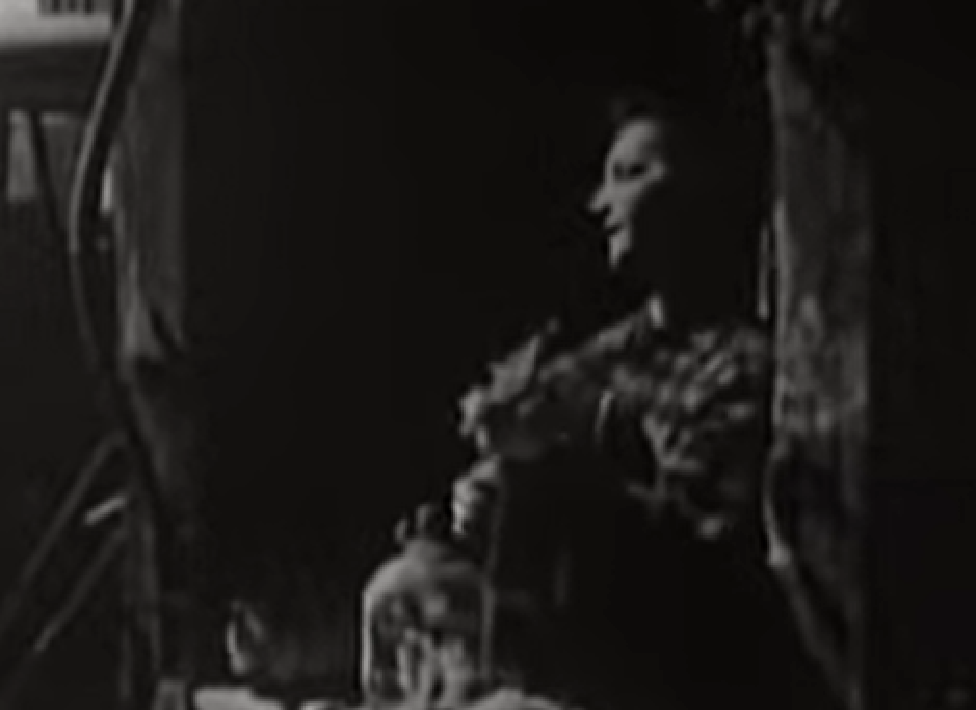 BBC Arena - Woody Guthrie (1988)
BBC Arena - Woody Guthrie (1988)
14. He Sang His Way West
Following a tide of humanity westward, Guthrie hitchhiked along Route 66 playing music in saloons, working as a sign painter, and doing any odd jobs he could find. Without money or a roof over his head during much of this time, Guthrie wondered if he could get to California before reaching the end of his rope. But the hard times were also a source of inspiration.
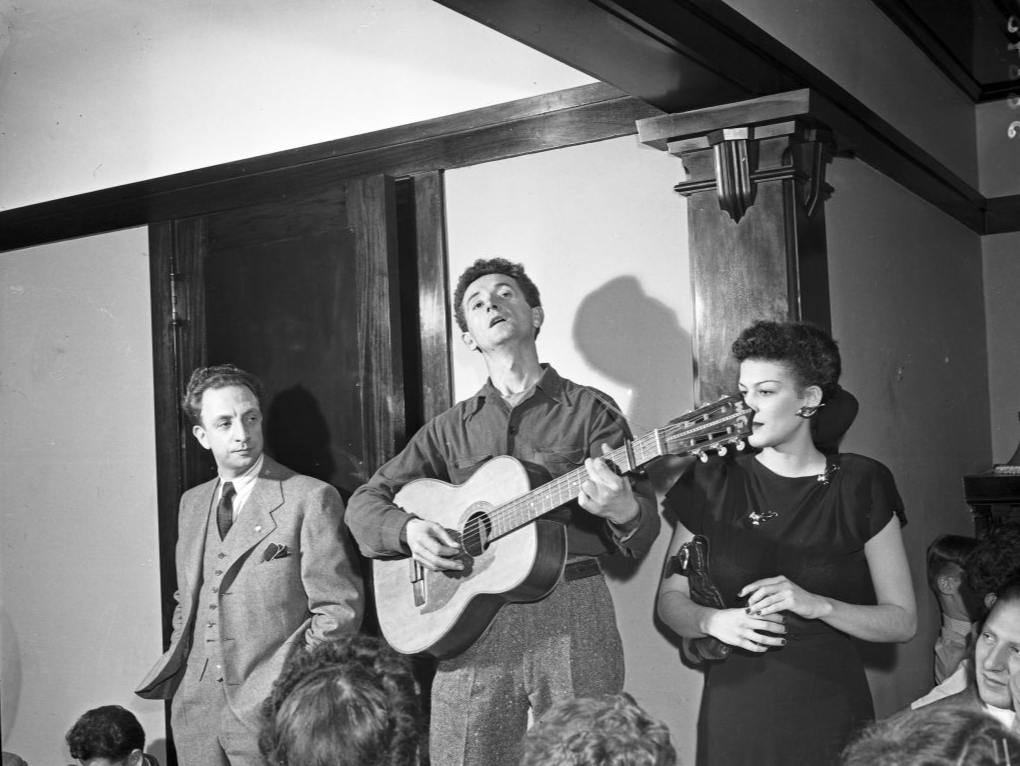 Chicago History Museum, Getty Images
Chicago History Museum, Getty Images
15. He Wrote His First Songs
Using the catastrophe of the Dust Bowl as his subject matter, Guthrie started writing his own songs. Some of the songs were sad, some were humorous, but they all radiated good will toward those who’d left their homes behind for a new life in California. Unfortunately, California wasn’t exactly the paradise Guthrie had hoped for.
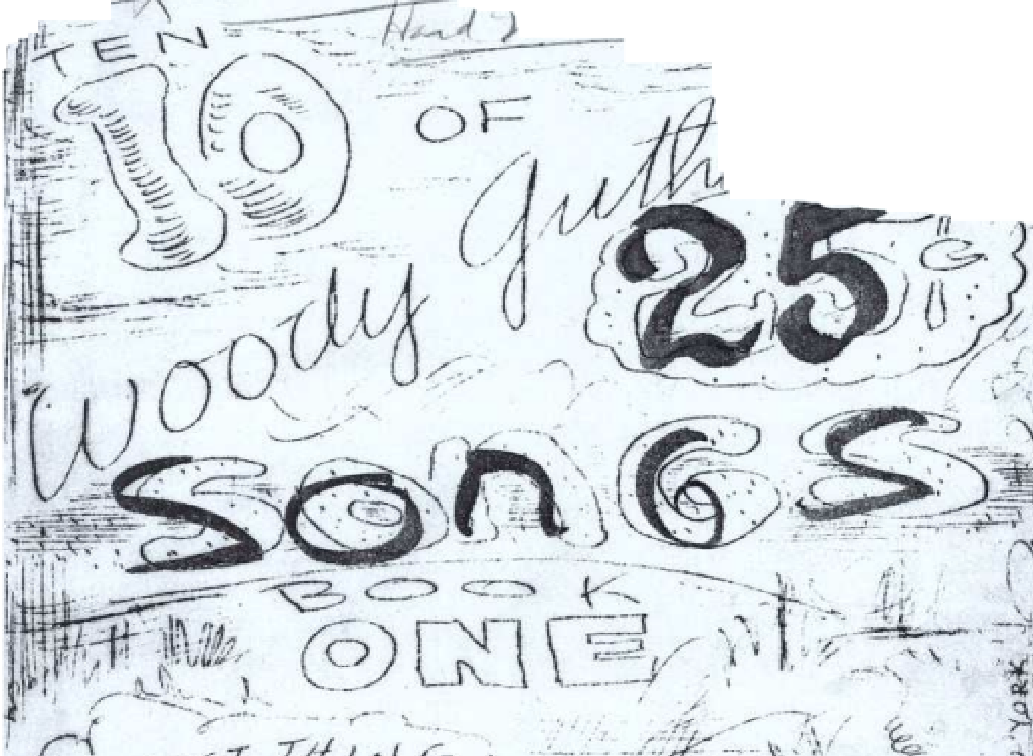 Woody Guthrie, Wikimedia Commons
Woody Guthrie, Wikimedia Commons
16. He Shared Their Hardships
Guthrie’s arrival in California hardly improved his situation. The local authorities were hostile to the encampments of “Okies”—people fleeing Oklahoma and other midwestern states. While travelling around the state, Guthrie continued to perform his songs and share in the people’s daily hardships. The situation he saw only hardened his evolving political views.
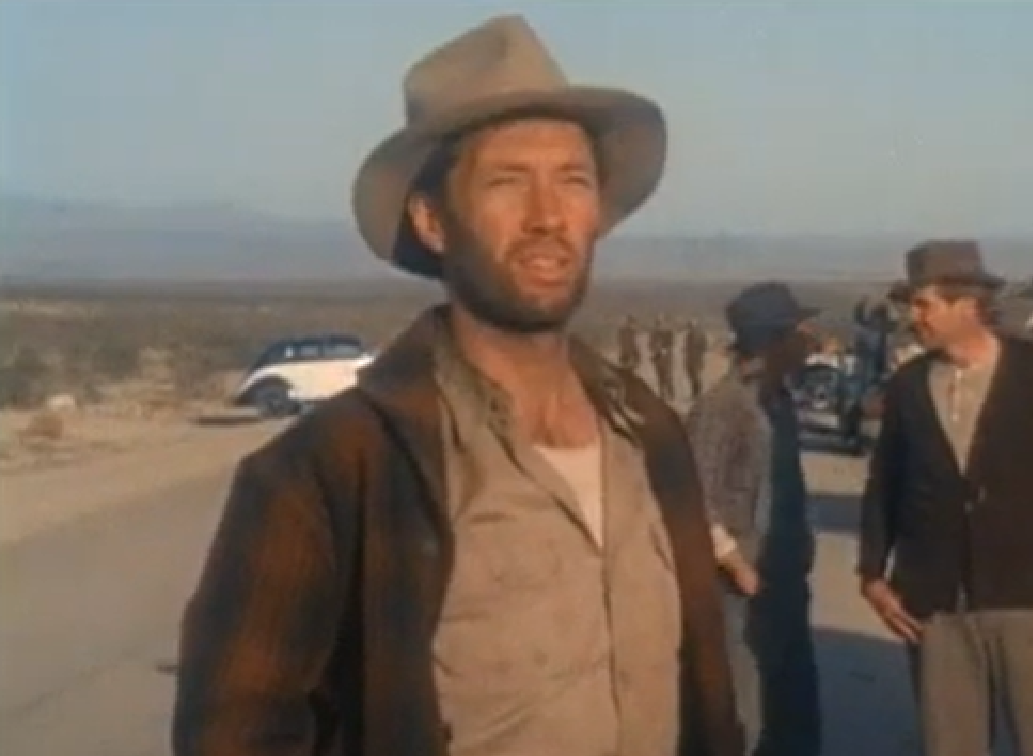 Bound for Glory, Bound for Glory (1976)
Bound for Glory, Bound for Glory (1976)
17. He Leaned Further Left
By the time he arrived in California, Guthrie had seen several tragedies: his mother shamed for her illness; mistreatment and violence toward Black people; people foreclosed out of their homes; and hostility toward the migrant workers around him. He’d read Marxist theory, but what infuriated him was the sight of disadvantaged people being kicked around when they were down. He had no trouble finding others who shared his views.
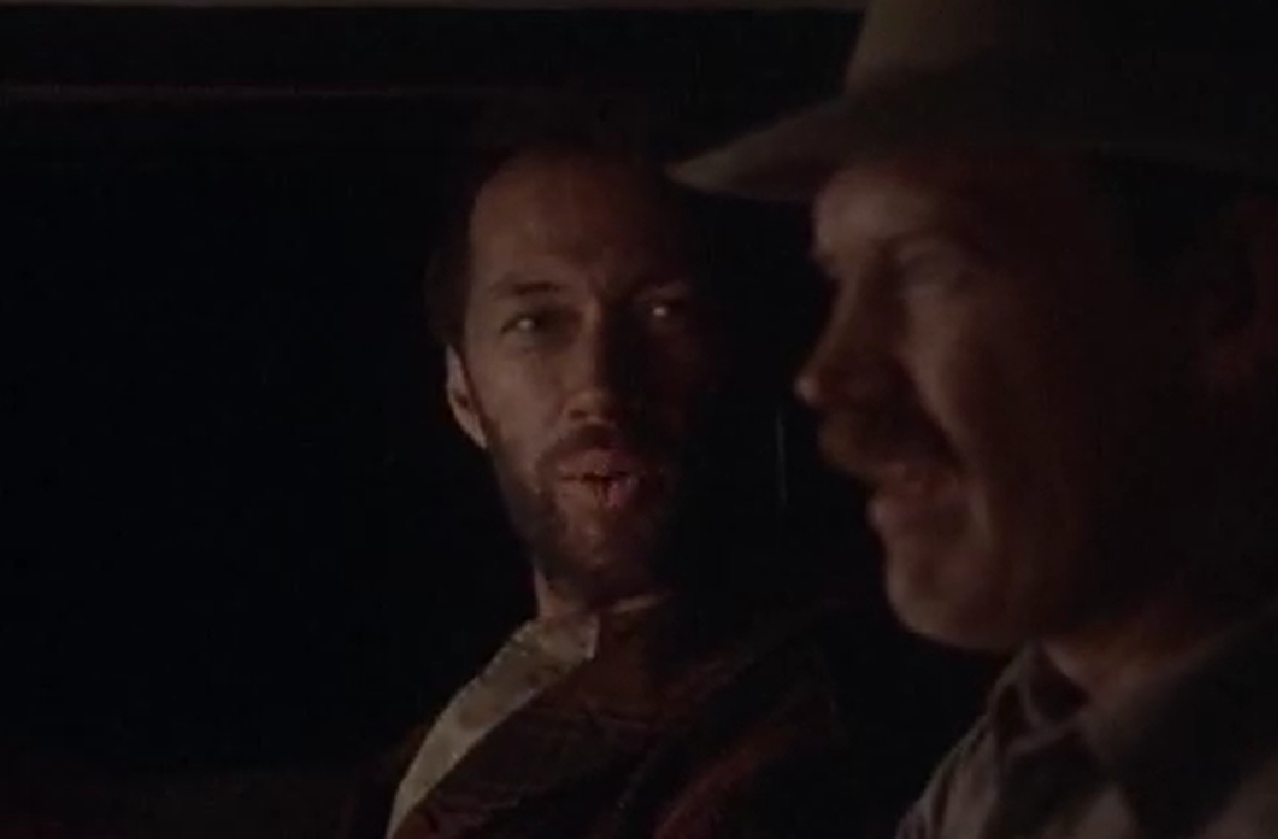 Bound for Glory, Bound for Glory (1976)
Bound for Glory, Bound for Glory (1976)
18. He Didn’t Sign On
Despite his strong left-wing and even communist views, Guthrie never formally joined the Communist Party. Guarding his independence like a stubborn mule, he was too individualistic to join such an organization. Guthrie was more than happy to sing in its support, though. And he would soon share his views on a bigger platform.
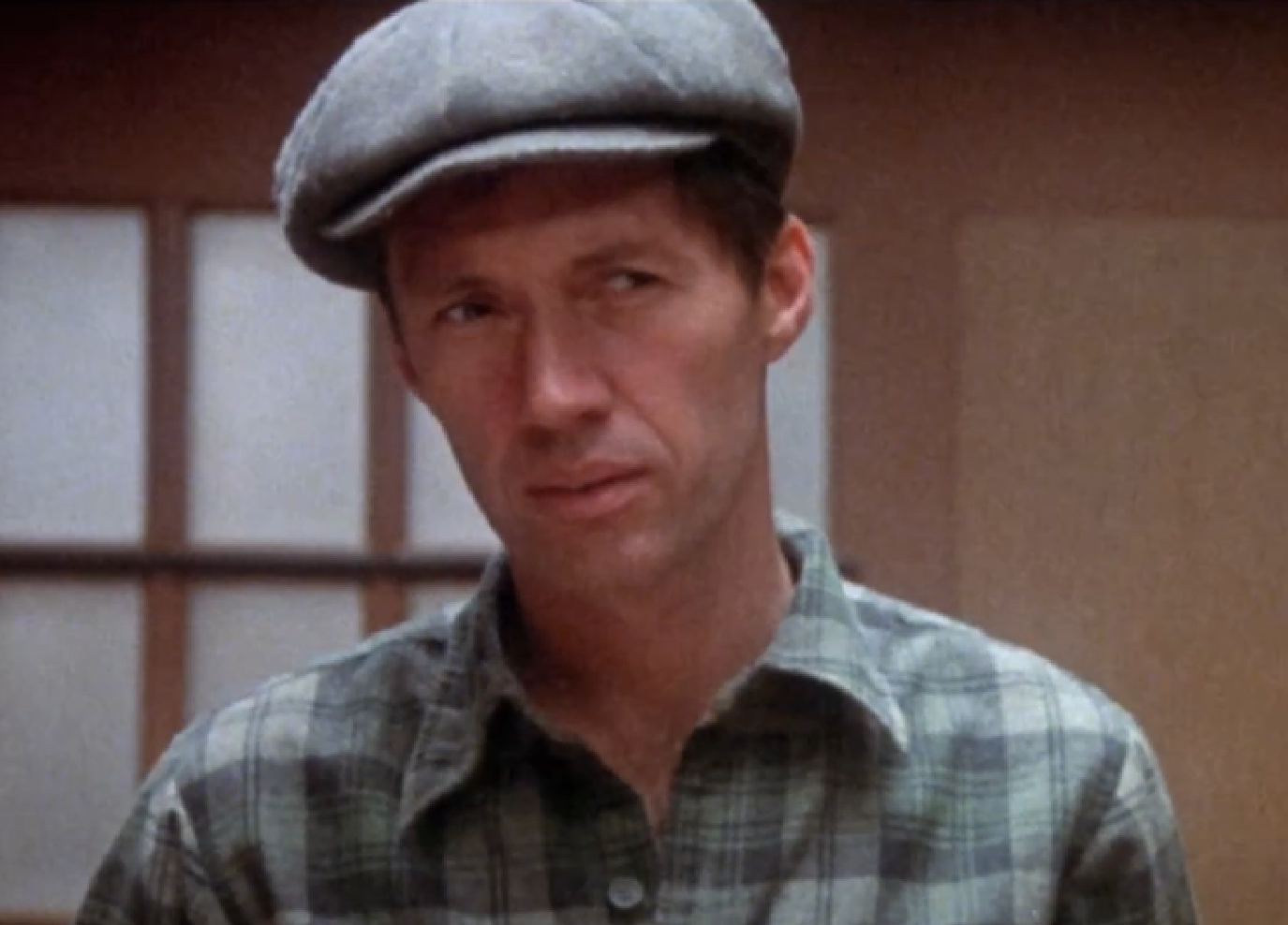 Bound for Glory, Bound for Glory (1976)
Bound for Glory, Bound for Glory (1976)
19. He Had A Radio Gig
Playing the migrant camps and music halls of the LA area eventually brought Guthrie to the attention of a local radio DJ, who hired him to co-host his show. Guthrie’s gift for music went hand-in-hand with his gift for gab; both were valuable qualities for a radio host. Guthrie’s success on the airwaves enabled him to pay for his family to move to California and join him. The outspoken Guthrie soon had a chance to put his views in print as well.
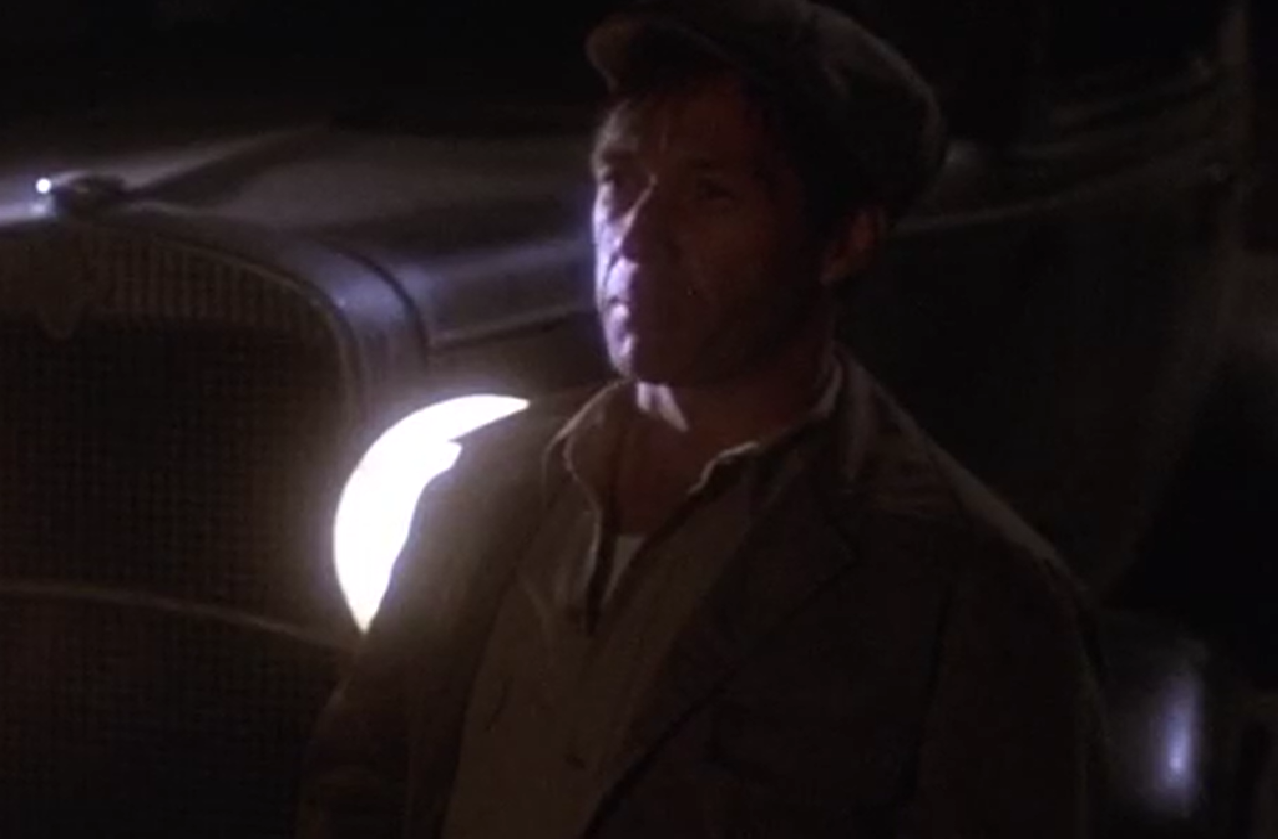 Bound for Glory, Bound for Glory (1976)
Bound for Glory, Bound for Glory (1976)
20. The Communist Became A Columnist
Guthrie started writing an unpaid column for The People’s Weekly, a Marxist newspaper. As the Depression ground on, he wasn’t shy about expressing where the fault lay for the country’s problems. Talented at drawing, Guthrie often added a cartoon just to drive the point home with a touch of humor. But even with all these pursuits, Guthrie still found time for his songwriting.
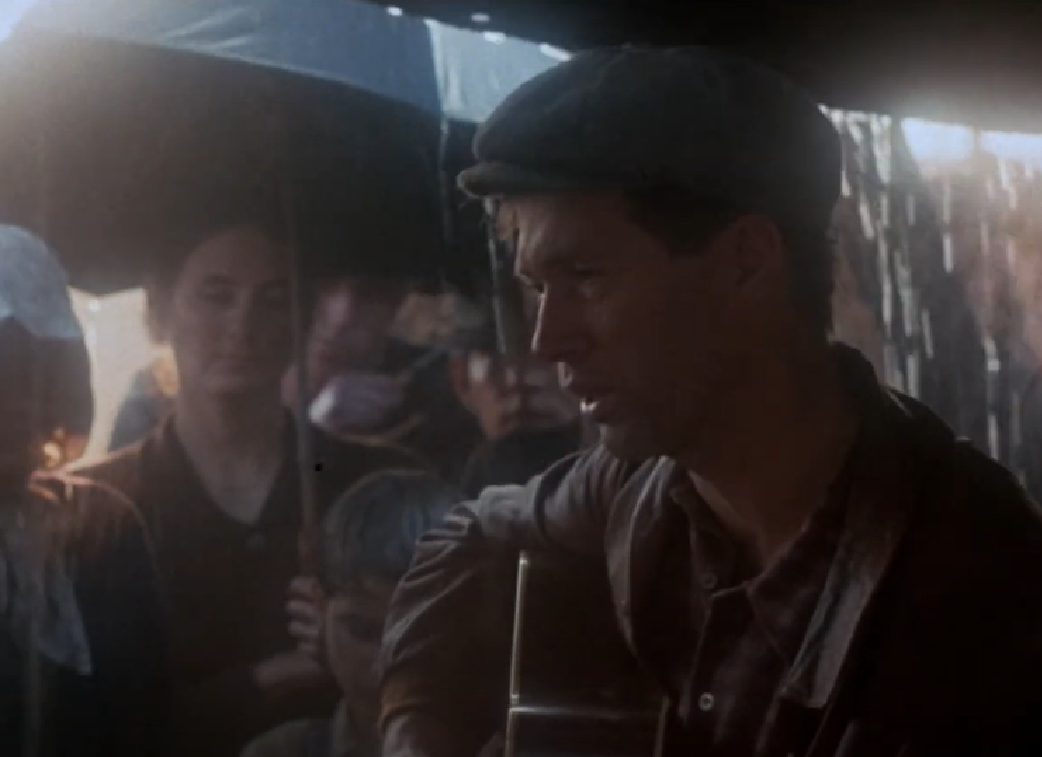 Bound for Glory, Bound for Glory (1976)
Bound for Glory, Bound for Glory (1976)
21. He Asked Who The Real Outlaws Were
Guthrie’s newest song, “Pretty Boy Floyd,” romanticized the legendary bank robber as a hero to the poor, while also asking if banks foreclosing people’s homes wasn’t another form of robbery. While the sentiment wasn’t uncommon at the time, it was Guthrie’s most outspoken song yet. Sometimes, Guthrie’s words got the better of him, though.
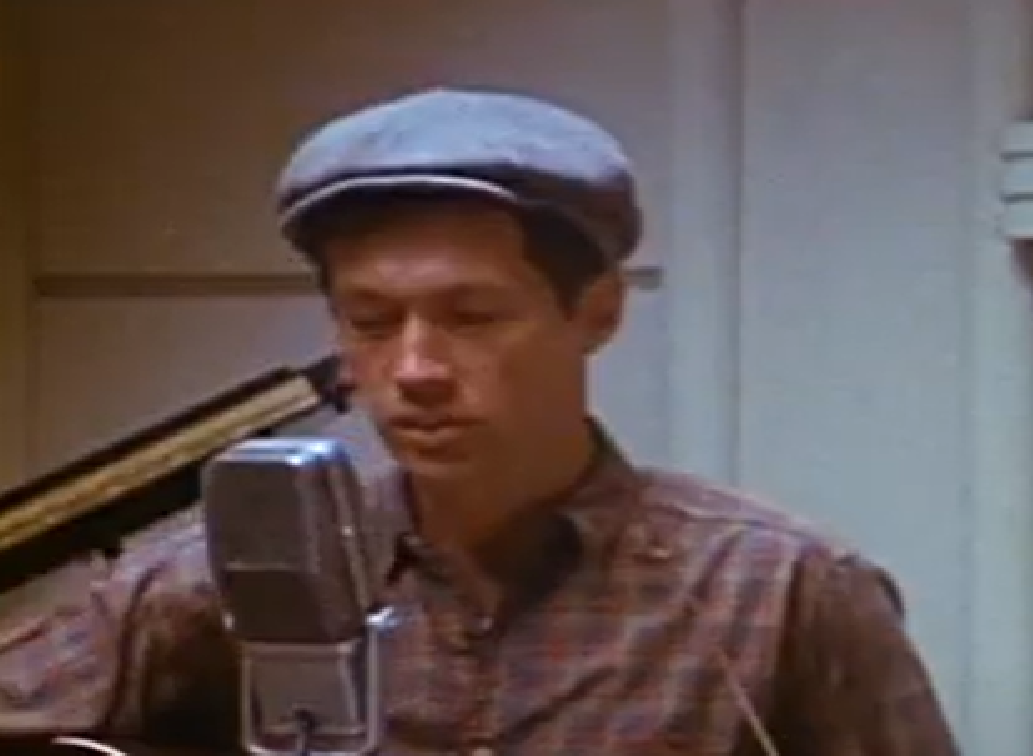 Bound for Glory, Bound for Glory (1976)
Bound for Glory, Bound for Glory (1976)
22. He Had To Evolve
Folk song lyrics of the era sometimes contained racial slurs, and Guthrie had not only sung these songs over the radio but thoughtlessly uttered anti-Black slurs on air. Finally, a Black listener wrote in, objecting to Guthrie’s conduct, after which he vowed to stop using the offensive words. Though he cleaned up his act in that respect, another contentious issue soon arose.
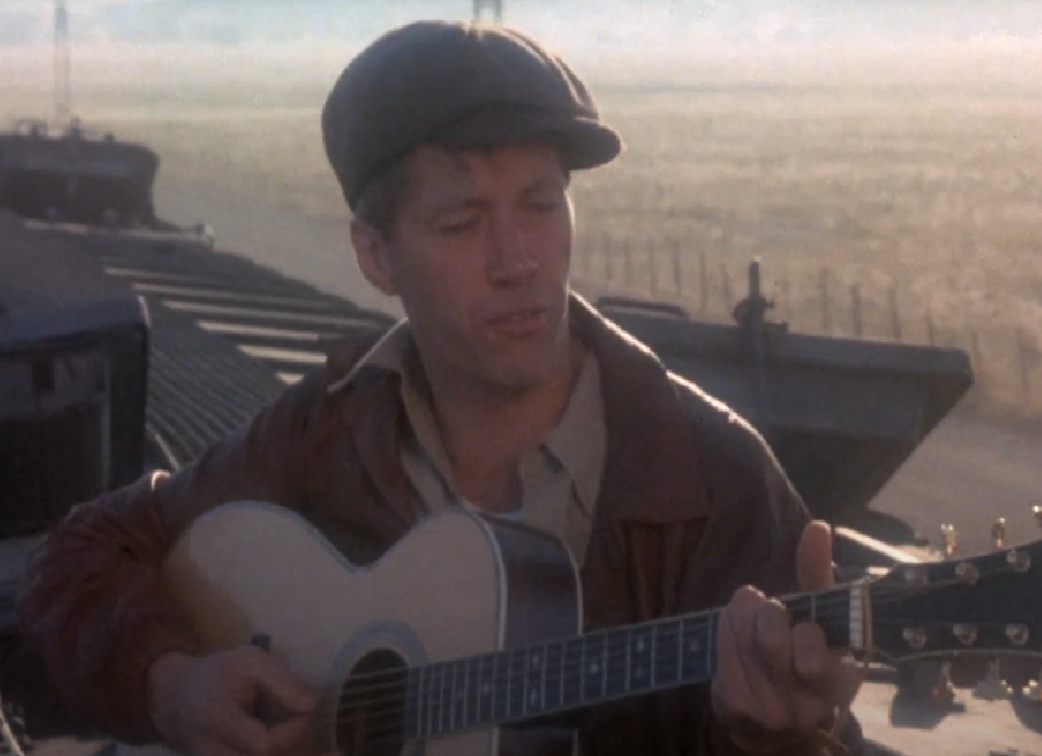 Bound for Glory, Bound for Glory (1976)
Bound for Glory, Bound for Glory (1976)
23. He Got Canned
Being a communist in the 1930s meant supporting the Soviet Union. The signing of the German-Soviet non-aggression pact and the outbreak of WWII brought Guthrie’s communist views into the crosshairs of the radio station’s owners. Wanting to avoid government scrutiny of Guthrie’s commentary, the station let him go. Packing up his few belongings, Guthrie got an earful.
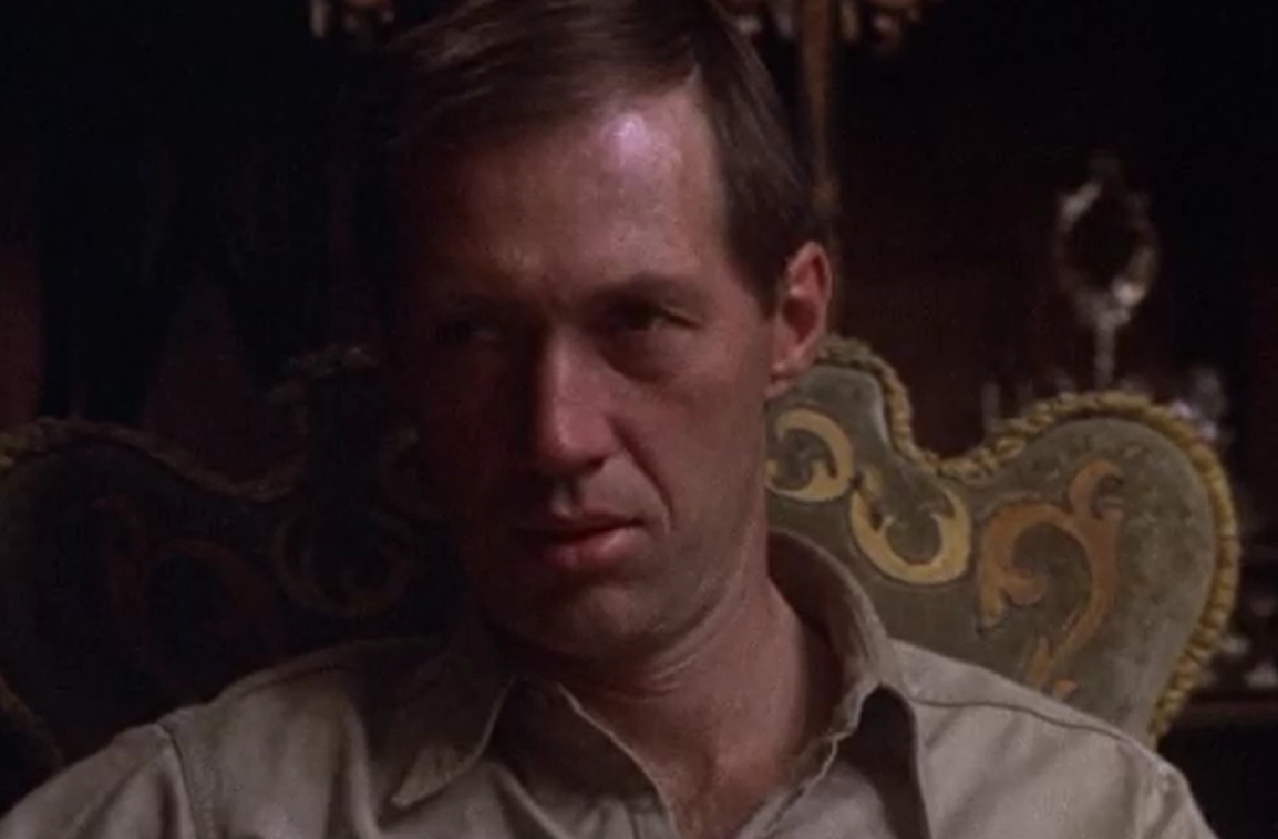 Bound for Glory, Bound for Glory (1976)
Bound for Glory, Bound for Glory (1976)
24. She Wanted Him Out Of Politics
Guthrie’s firing left the family broke; they had no other choice but to return to Texas. His wife Mary, understandably upset, told him that he shouldn’t have brought politics into his radio show in the first place. His leftist views made him almost unemployable in the current climate. Glumly, the family headed home.
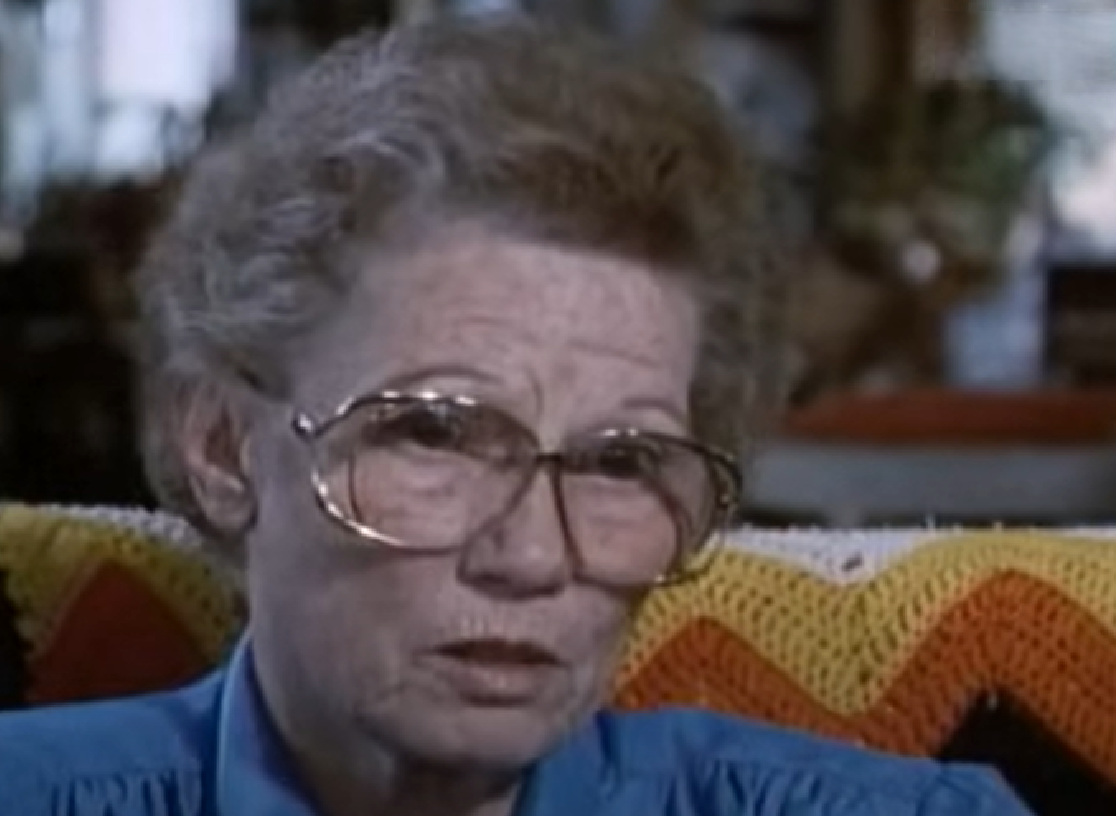 BBC Arena - Woody Guthrie (1988)
BBC Arena - Woody Guthrie (1988)
25. He Took A Step Back
The Guthries rode a 1929 Chevrolet Sedan the 1,700 miles home along Route 66. They arrived in Pampa just in time for Christmas 1939, but the mood was hardly festive. Guthrie had no job prospects in the small Texas town. But the thing was, even if he’d had a job lined up, he didn’t really want to stay. Feeling like he’d taken a step back in his newfound career, he mulled his options. Then one day, a letter arrived.
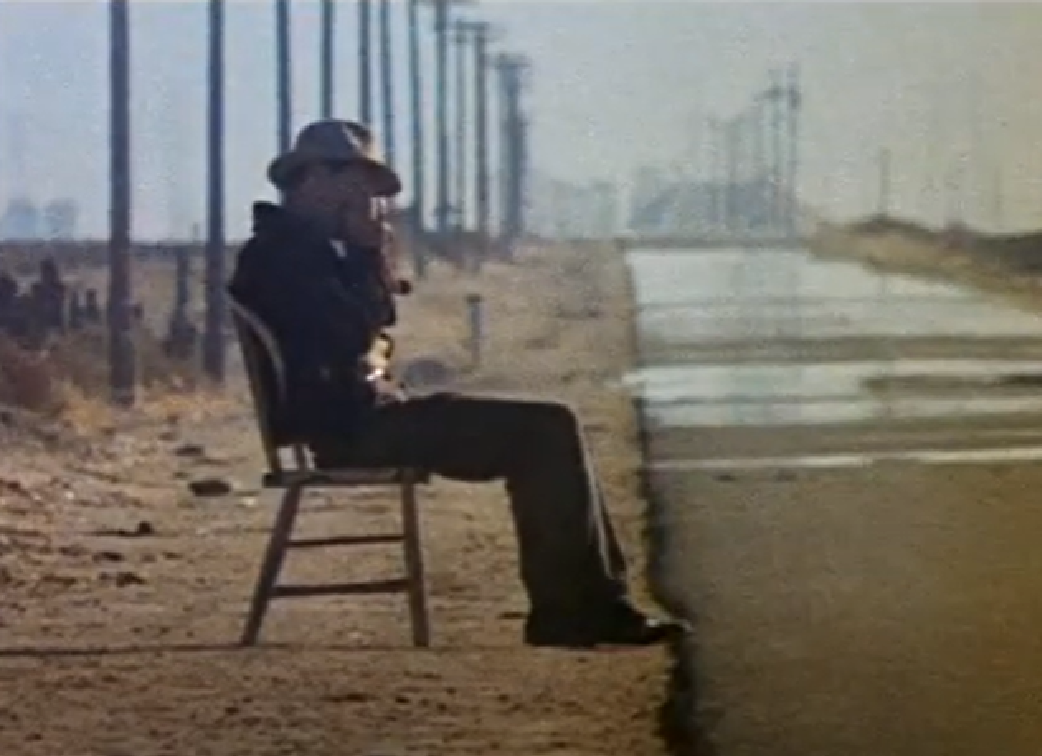 Bound for Glory, Bound for Glory (1976)
Bound for Glory, Bound for Glory (1976)
26. He Went To New York
A letter arrived in Pampa from the actor Will Geer, who Guthrie had befriended during his time in California. Geer invited Guthrie to come to New York and explore the music and acting opportunities there. With a standing offer to stay with the Geers, and already restless to hit the road again, Guthrie packed up his six-string and started hitching his way northeast.
 Federal Theatre Project, Wikimedia Commons
Federal Theatre Project, Wikimedia Commons
27. They Welcomed An Oklahoma Cowboy
The close-knit community of New York folk musicians and politically active writers had built up an image of Guthrie in their minds as a strapping Wild West figure. They called him “the Oklahoma Cowboy” at first, but soon realized that despite his down-home accent, Guthrie was extremely well-read and very intelligent. Guthrie quickly became a welcome figure in the local folk music scene.
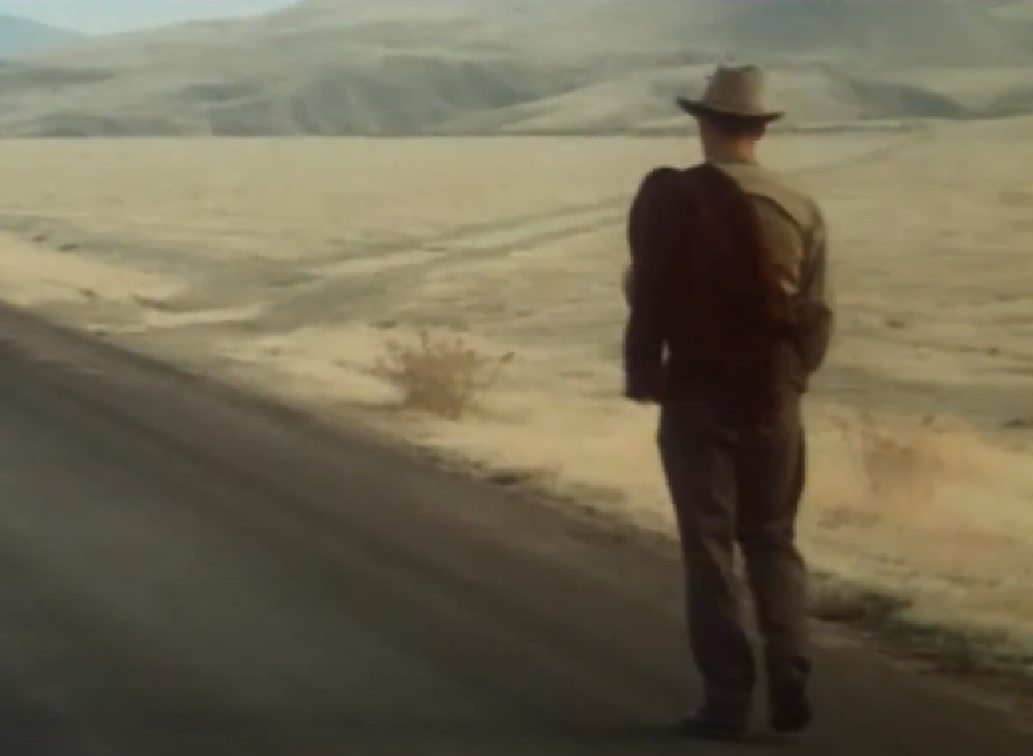 Bound for Glory, Bound for Glory (1976)
Bound for Glory, Bound for Glory (1976)
28. He Made A Concept Album
Not only had Guthrie caused a stir in the local music scene, word of his arrival had gotten around to the record companies. Victor Records signed Guthrie to cut an album. Called Dust Bowl Ballads (1940), the album would be his only major label release. Consisting entirely of songs he’d written on the road to California, it was an early “concept album”. Finished with the recording, Guthrie focused on writing even more songs.
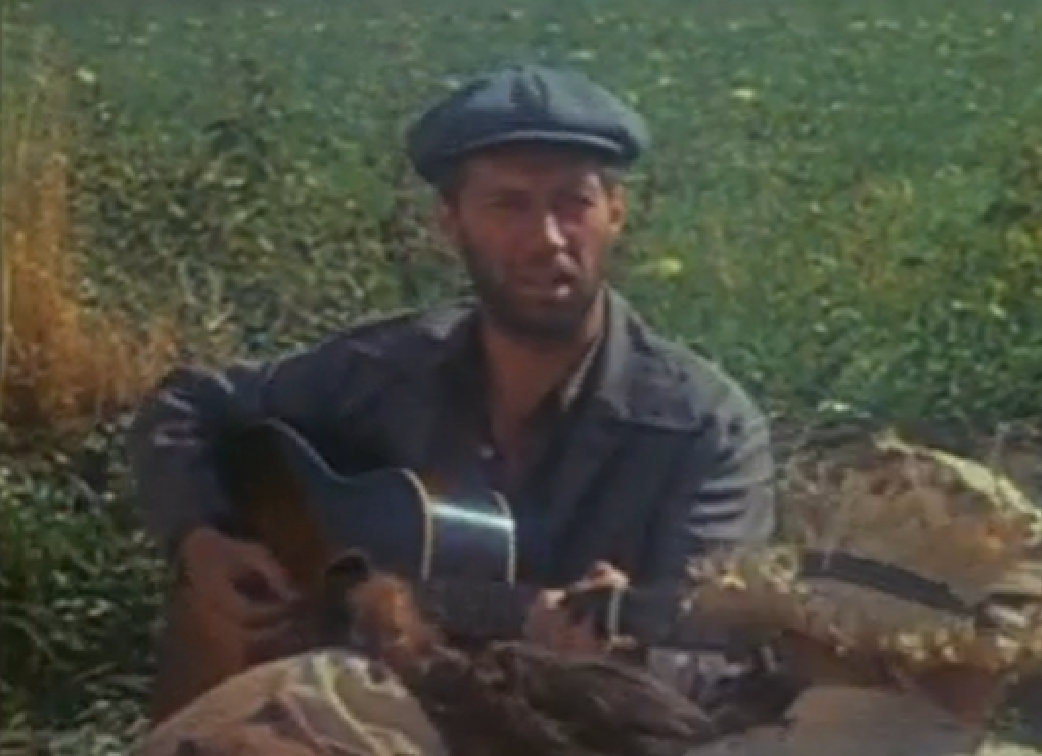 Bound for Glory, Bound for Glory (1976)
Bound for Glory, Bound for Glory (1976)
29. He Was Irritated
Guthrie was fed up with hearing Kate Smith’s “God Bless America” every time he switched on a radio. With the dark situation in Europe looming larger, it seemed like the patriotic song was on all the time. After the turmoil he’d seen back home and out west, Guthrie felt the song was just a little too impressive, a little too complacent. He knew he could do better. With his guitar and his pen, Guthrie set out to write a song in reply.
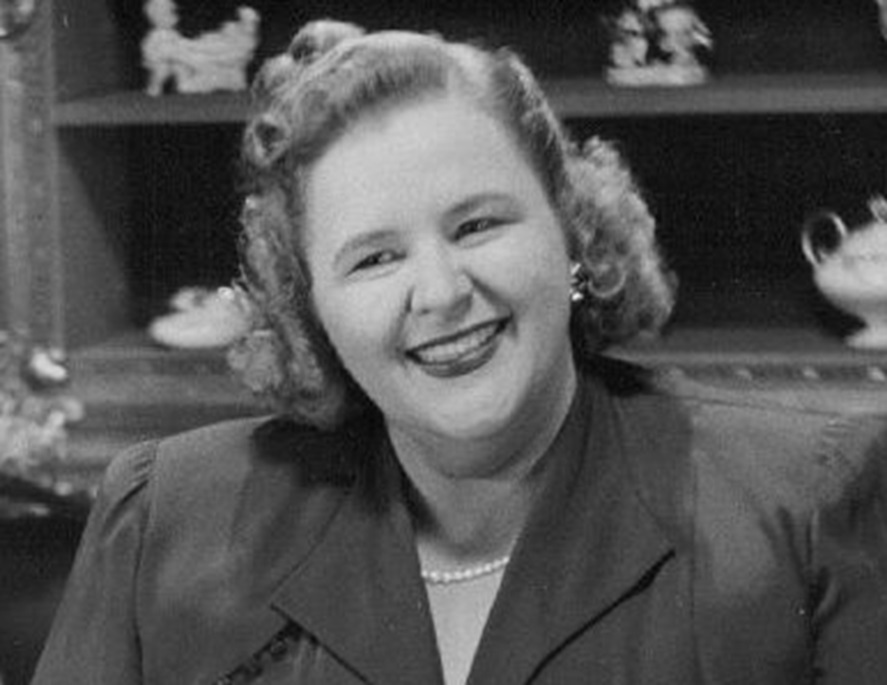 NBC Television, Wikimedia Commons
NBC Television, Wikimedia Commons
30. He Came Up With An Answer
Rarely at a loss for words, Guthrie quickly wrote the lyrics to “This Land is Your Land” and set them to the melody of an old gospel song by the Carter Family. Strumming through it a few times, he managed to get the irritation of “God Bless America” out of his system. He set aside the lyrics to “This Land is Your Land”—and promptly forgot about it! He was looking forward to his next gig.
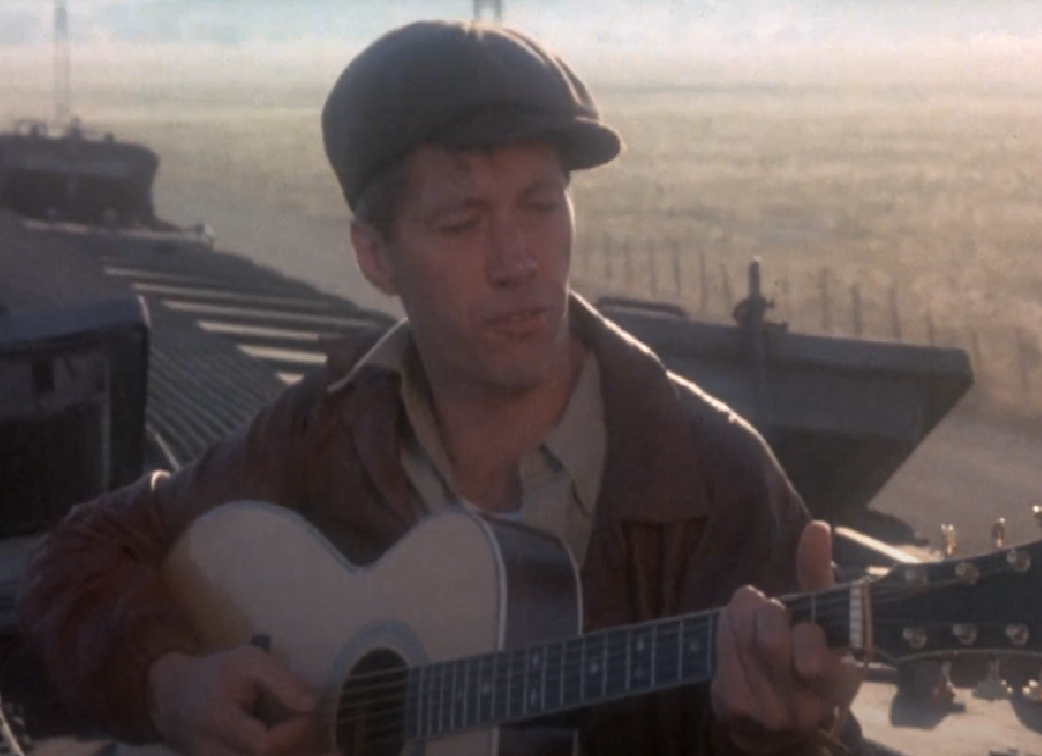 Bound for Glory, Bound for Glory (1976)
Bound for Glory, Bound for Glory (1976)
31. He Met A Fellow Folky
Guthrie played at a benefit concert in New York to aid migrant farm workers. There, he met Pete Seeger, an accomplished folk singer with many of the same views he had. The two struck up a friendship, and would frequently jam and perform together in the years ahead. With summer on the way, the two agreed that it was the perfect time to head out on tour.
 Walter Albertin, Wikimedia Commons
Walter Albertin, Wikimedia Commons
32. He Was Shocked At How They Lived
Guthrie and Seeger travelled the South, playing saloons and homeless camps along the way. The pair visited Guthrie’s wife and kids in Pampa, Texas. Himself from an upper middle-class family, Seeger was shocked at the sight of the Guthrie home, which wasn’t much more than a shack. He’d wanted to sing about the lives of the downtrodden—when he was with Guthrie, he would live their lives too. But Guthrie was about to come into some money.
 Horne, Joseph A. (Joseph Anthony), Wikimedia Commons
Horne, Joseph A. (Joseph Anthony), Wikimedia Commons
33. He Was Back On The Airwaves
Having had several guest spots on radio shows, Guthrie was offered a job hosting a weekly radio show of his own called Pipe Smoking Time. With a salary of $180 a week, Guthrie could afford to rent a nice apartment in Manhattan. He was also able to pay to have his wife and kids join him in New York. Meanwhile, his radio work led to a collaboration with another great folk artist.
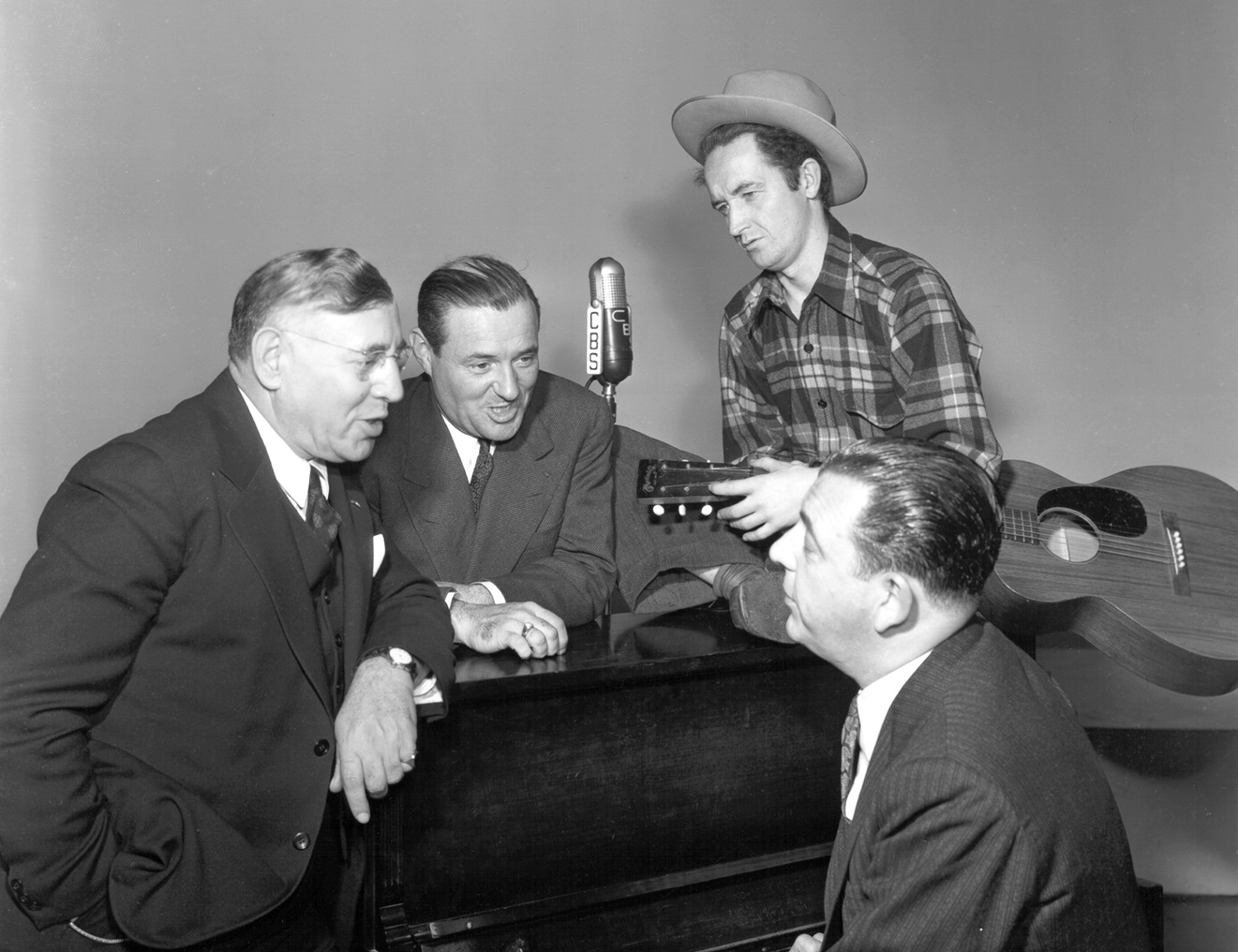 Donaldson Collection, Getty Images
Donaldson Collection, Getty Images
34. He Helped Out A New Friend
In the course of one of his many radio appearances, Guthrie secured a guest spot for the folk-blues performer Huddy Ledbetter, AKA Leadbelly. While this helped Leadbelly gain a wider audience, it also led to a friendship and many future collaborations between the two artists. In the meantime, Guthrie was already growing tired of his radio hosting gig.
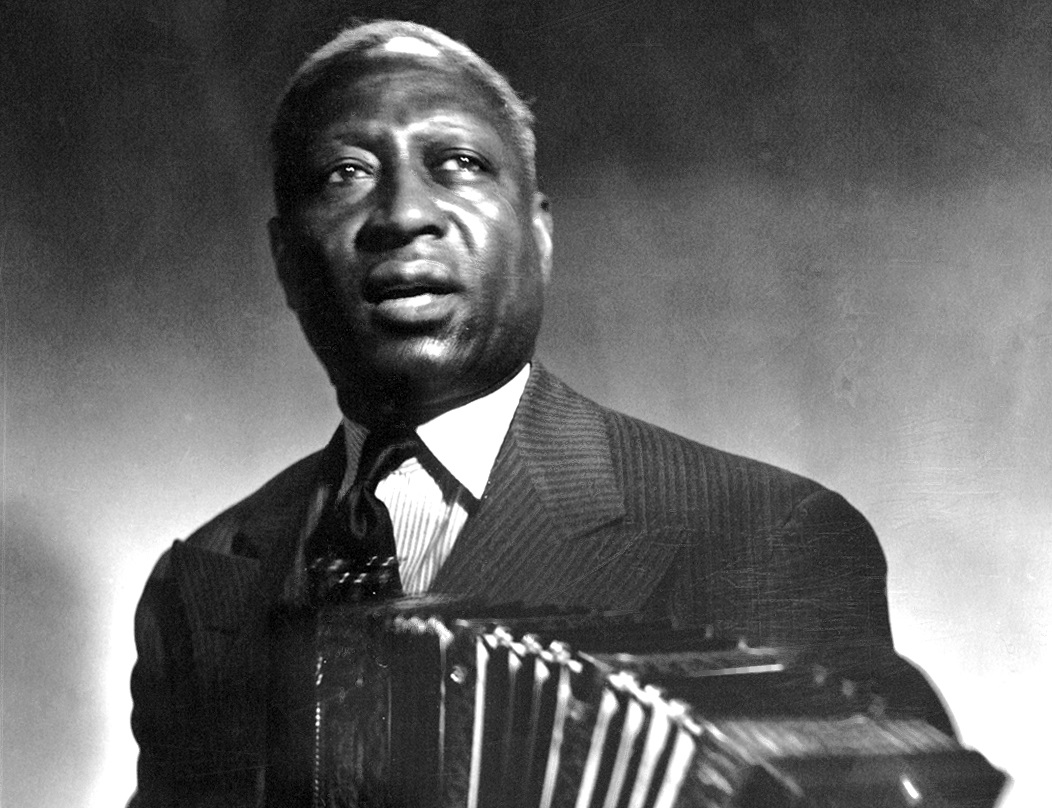 Library of Congress, Wikimedia Commons
Library of Congress, Wikimedia Commons
35. He Went Back West
While his job as host of Pipe Smoking Time paid well, the show’s managers limited what Guthrie could say on air. Frustrated with the censorship, he got a job as narrator and songwriter for a documentary on a hydroelectric dam project in Oregon. Guthrie and his family headed out west and spent a month on location. But as he returned to New York, Mary told Guthrie he’d be on his own.
 Bound for Glory, Bound for Glory (1976)
Bound for Glory, Bound for Glory (1976)
36. She Couldn’t Do It Anymore
The long periods of separation from Guthrie had put a strain on his family; his constant travelling and career changes made staying together with him even harder. Over the years, Mary had shouldered as much hardship as Guthrie had, if not more. She told Guthrie she was leaving him and going back to Texas with the kids. The divorce would go through in 1943. Meanwhile, Guthrie jumped on board a new project.
 Bound for Glory, Bound for Glory (1976)
Bound for Glory, Bound for Glory (1976)
37. He Joined A New Band
Back in New York, Guthrie joined Pete Seeger’s new group, The Almanac Singers. The group was part of an effort to spread a pro-union, anti-war, and anti-racist message. They performed regularly at union rallies, and once gave a concert at Madison Square Garden for 20,000 striking transit workers. But the express train of Guthrie’s politics was about to switch tracks.
 Fred Palumbo, Wikimedia Commons
Fred Palumbo, Wikimedia Commons
38. He Changed His Tune
The news of Germany’s invasion of the Soviet Union caused an instant 180-degree reversal in the Communist Party’s stance on the conflict; Guthrie and other leftist performers followed suit. Whereas before they’d always urged the United States to stay out of WWII, they now sang songs about the need to beat the fascists. While he continued to eye the political situation, Guthrie focused on a new idea.
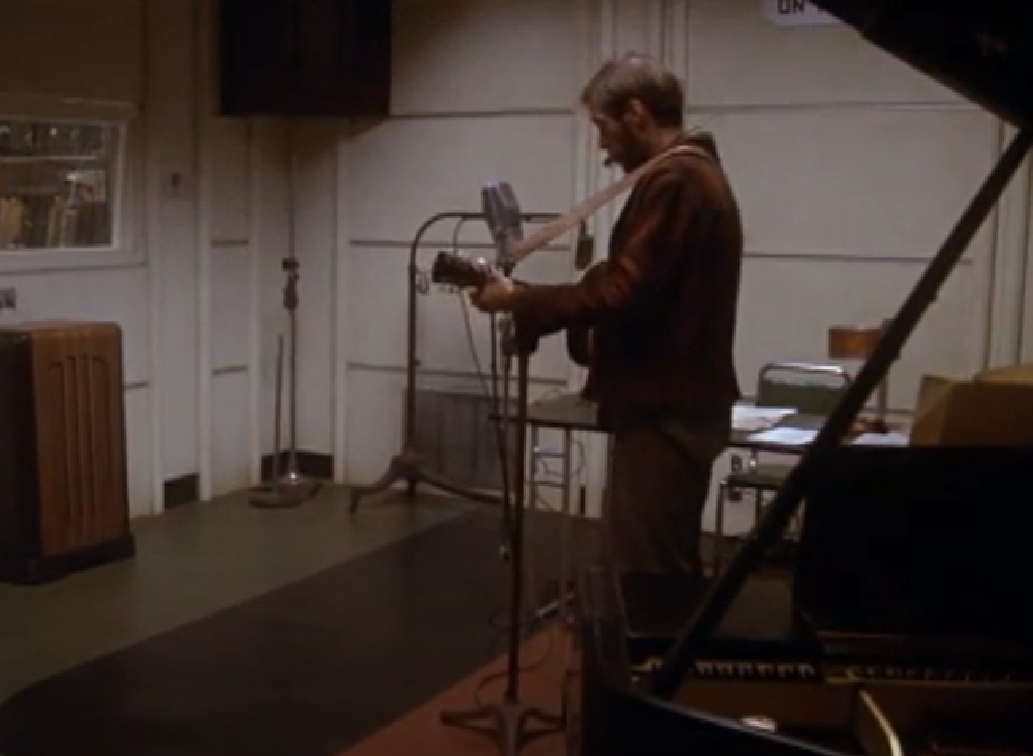 Bound for Glory, Bound for Glory (1976)
Bound for Glory, Bound for Glory (1976)
39. He Told His Story In His Own Words
Music writer and researcher Alan Lomax now encouraged Guthrie to write his autobiography. Guthrie had always been a prolific writer, and had enough experiences to fill several lifetimes. By the time he finished writing Bound for Glory (1943), he also had a new lady in his life.
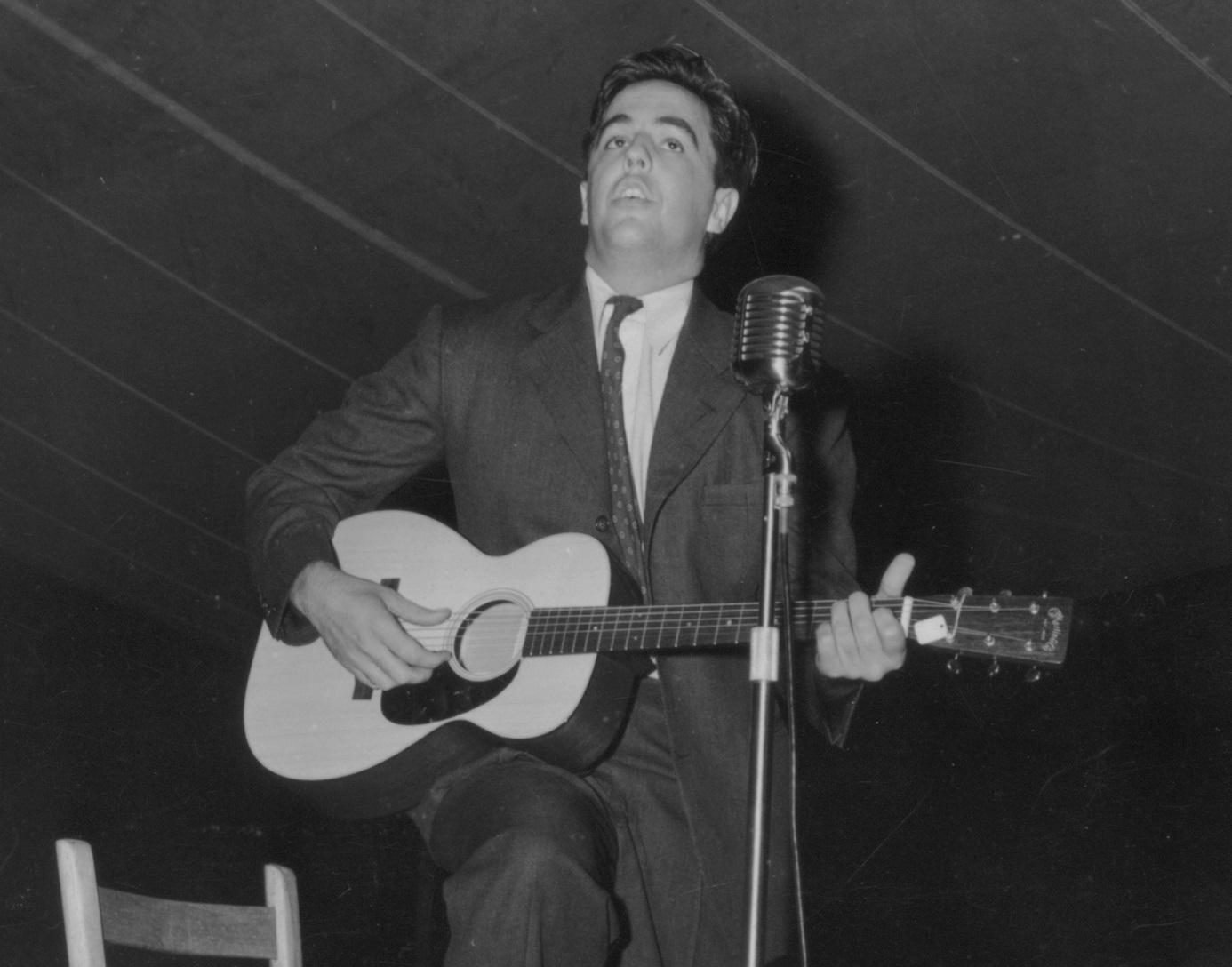 Unknown Author, Wikimedia Commons
Unknown Author, Wikimedia Commons
40. He Met A Dancer
Marjorie Mazia was a dance instructor who met Guthrie through a mutual friend. Like many New Yorkers, Marjorie had always envisioned Guthrie as a tall cowboy in a Stetson hat. But though she was surprised to see the weather-beaten troubadour was only 5’6”, it wasn’t long before he swept her off her feet. They were made for each other, and she soon brought him wonderful news.
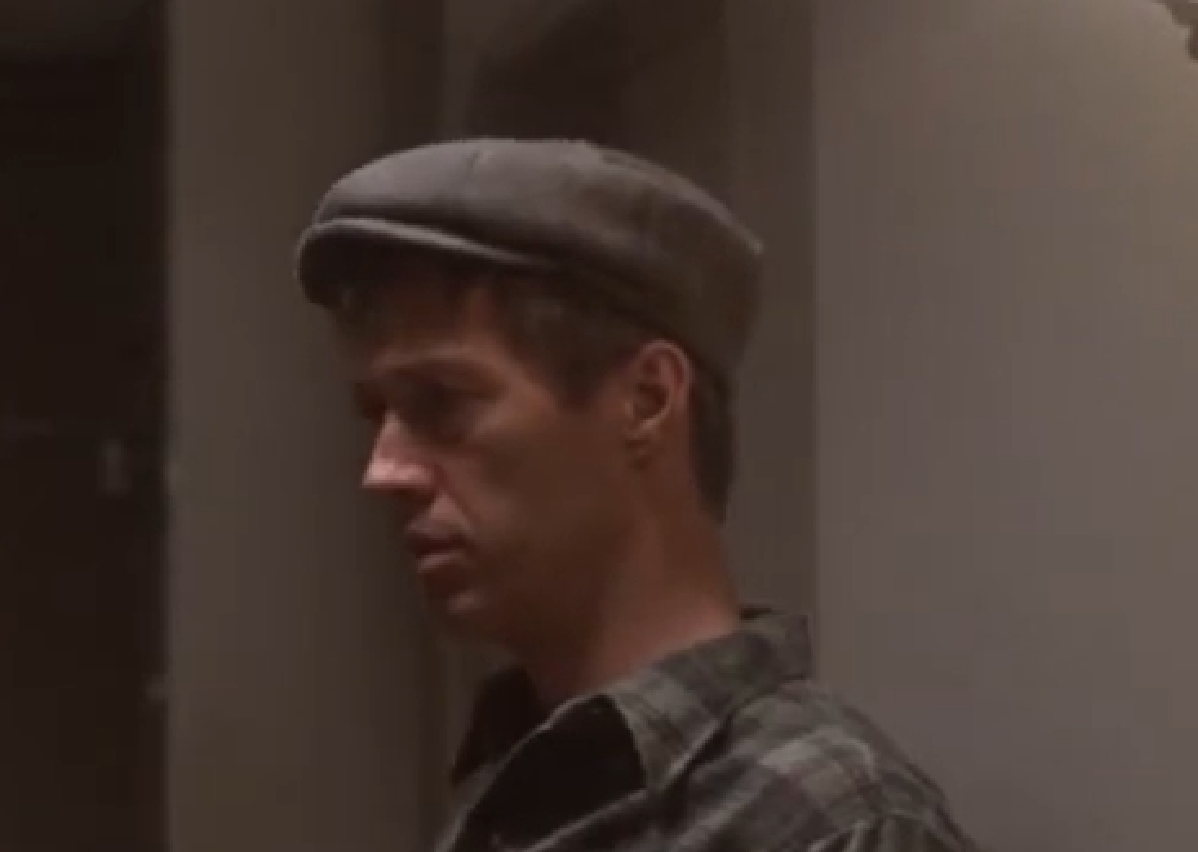 Bound for Glory, Bound for Glory (1976)
Bound for Glory, Bound for Glory (1976)
41. She Had A Surprise For Him
Marjorie was pregnant with Guthrie’s child, which posed a problem for the pair since they were both still legally married to other people. Their daughter, Cathy Ann Guthrie, was born in 1943. With this new joy in his life, Guthrie dusted off some old lyric sheets and found his way back into the recording studio.
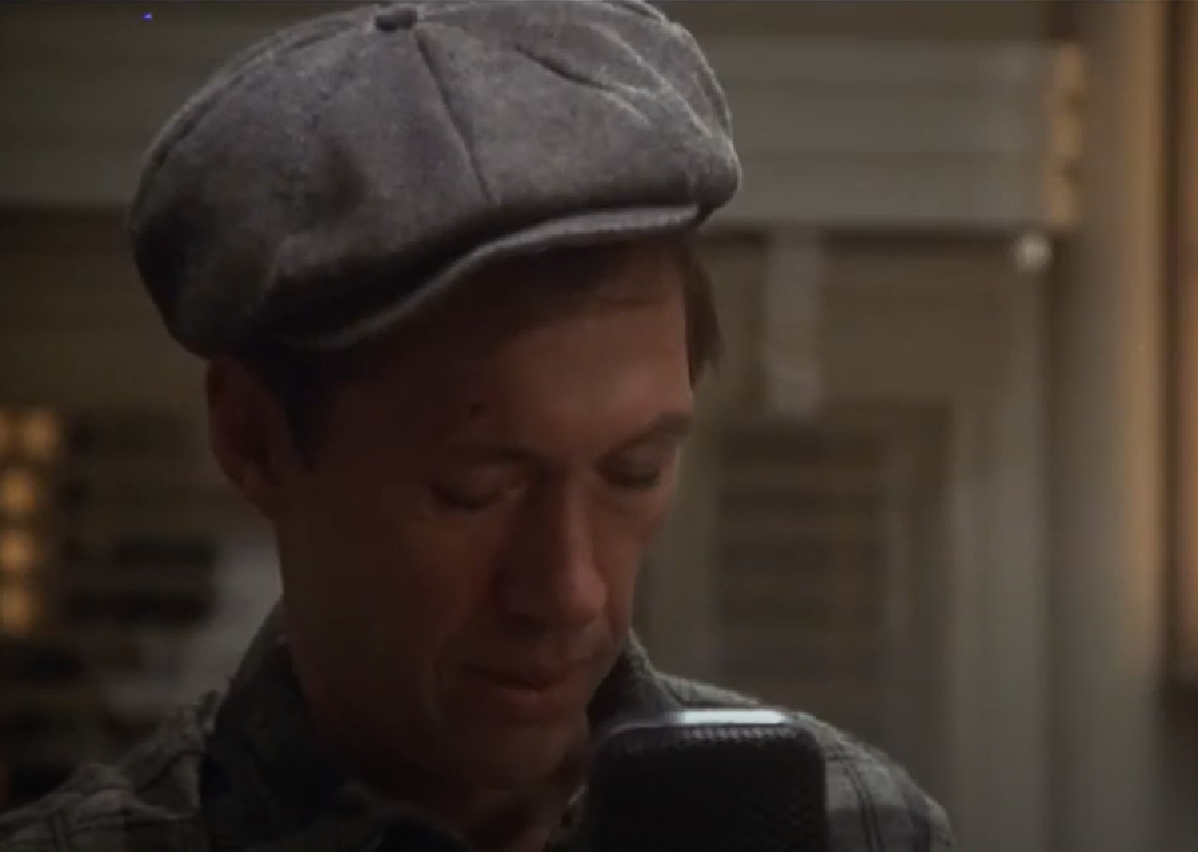 Bound for Glory, Bound for Glory (1976)
Bound for Glory, Bound for Glory (1976)
42. He Met Moses
Guthrie had met Moses “Moe” Ascher, the manager of Folkways Records. Knowing the value of Guthrie’s work, Ascher was determined to record as many of his songs as possible. One of the first songs Guthrie cut was his old 1940 composition, “This Land is Your Land”, which has since become an American classic. Guthrie would record hundreds of other songs for Folkways. But Guthrie was faced with another challenge.
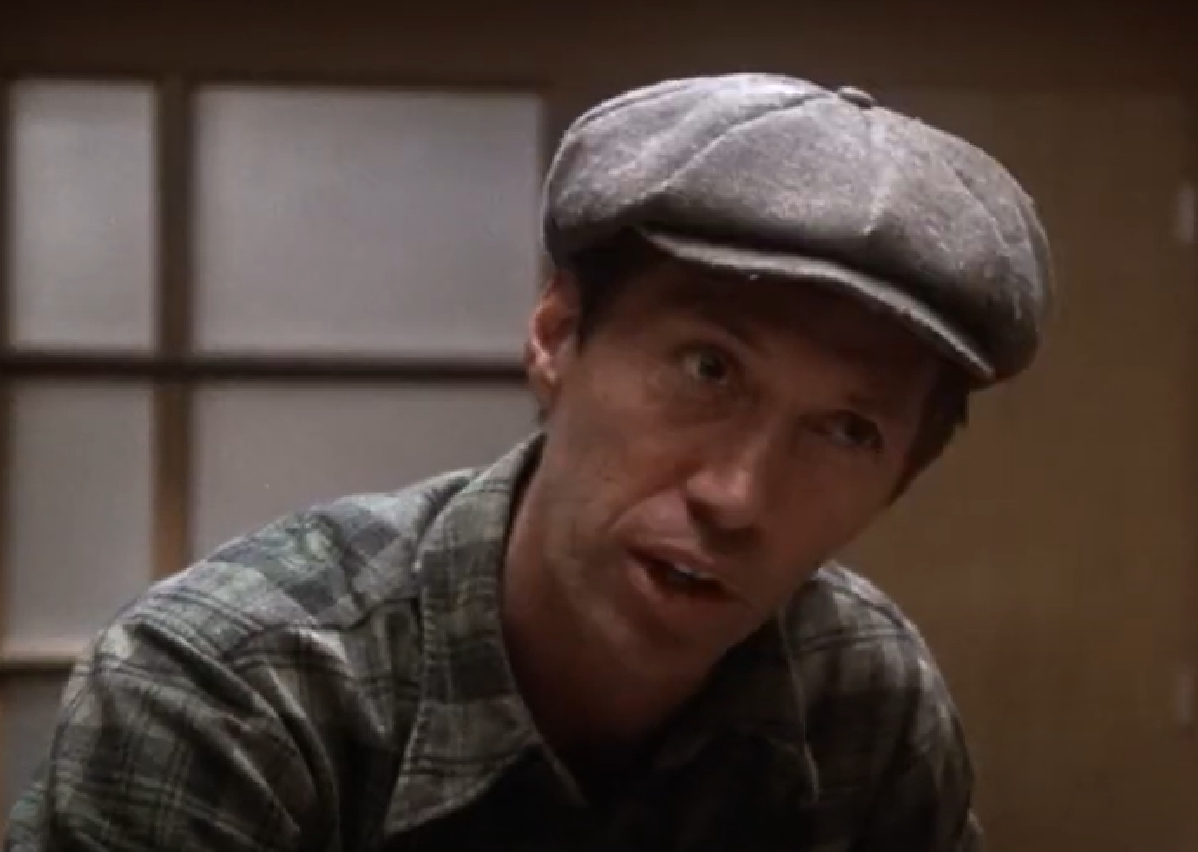 Bound for Glory, Bound for Glory (1976)
Bound for Glory, Bound for Glory (1976)
43. He Joined The Merchant Marine
Seeking to avoid army service, Guthrie signed up for the US Merchant Marine. Serving on board transport ships as a dishwasher in the mess hall, Guthrie also sang songs for the crew to break the monotony of the long sea voyages. But his first voyage was nearly his last.
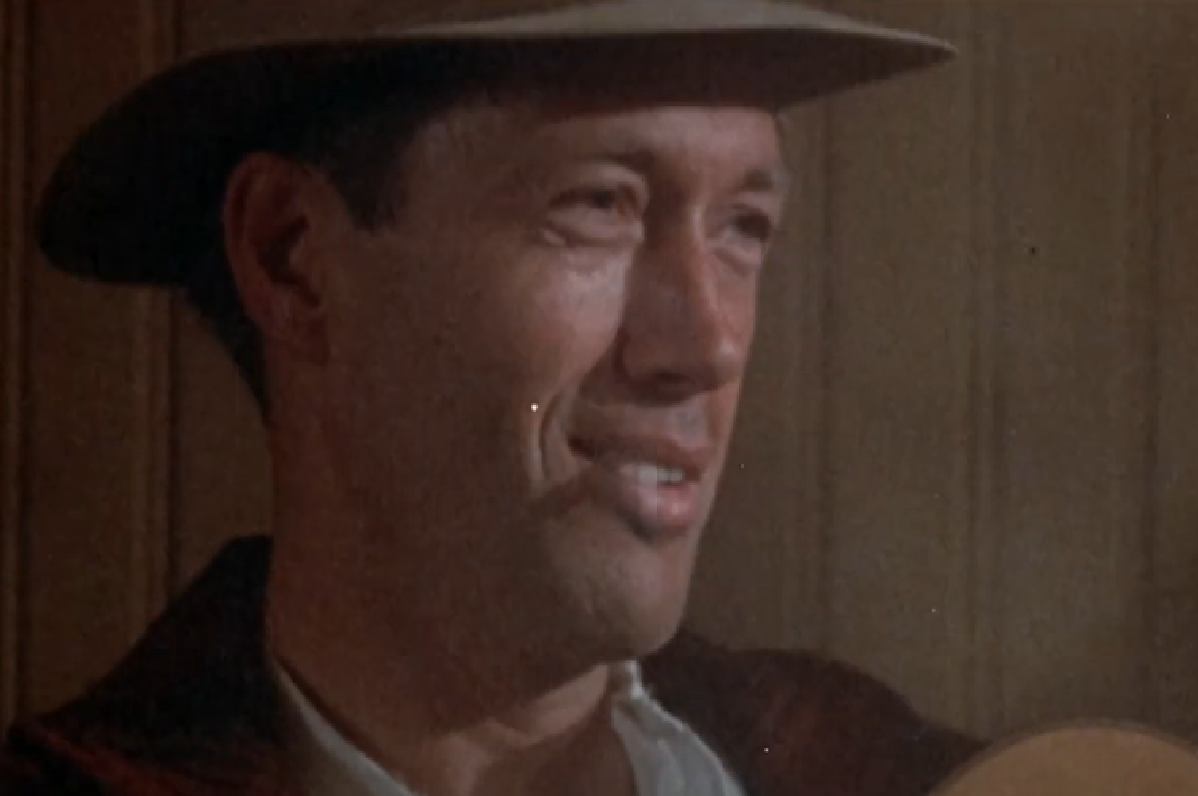 Bound for Glory, Bound for Glory (1976)
Bound for Glory, Bound for Glory (1976)
44. He Shared The Danger
There was no shortage of danger on the transport ships. The lumbering vessels were little more than giant targets for enemy submarines. Guthrie was aboard the SS William B Travis when it hit a mine in the Mediterranean, claiming the life of one sailor. That wasn’t the only close call he would have.
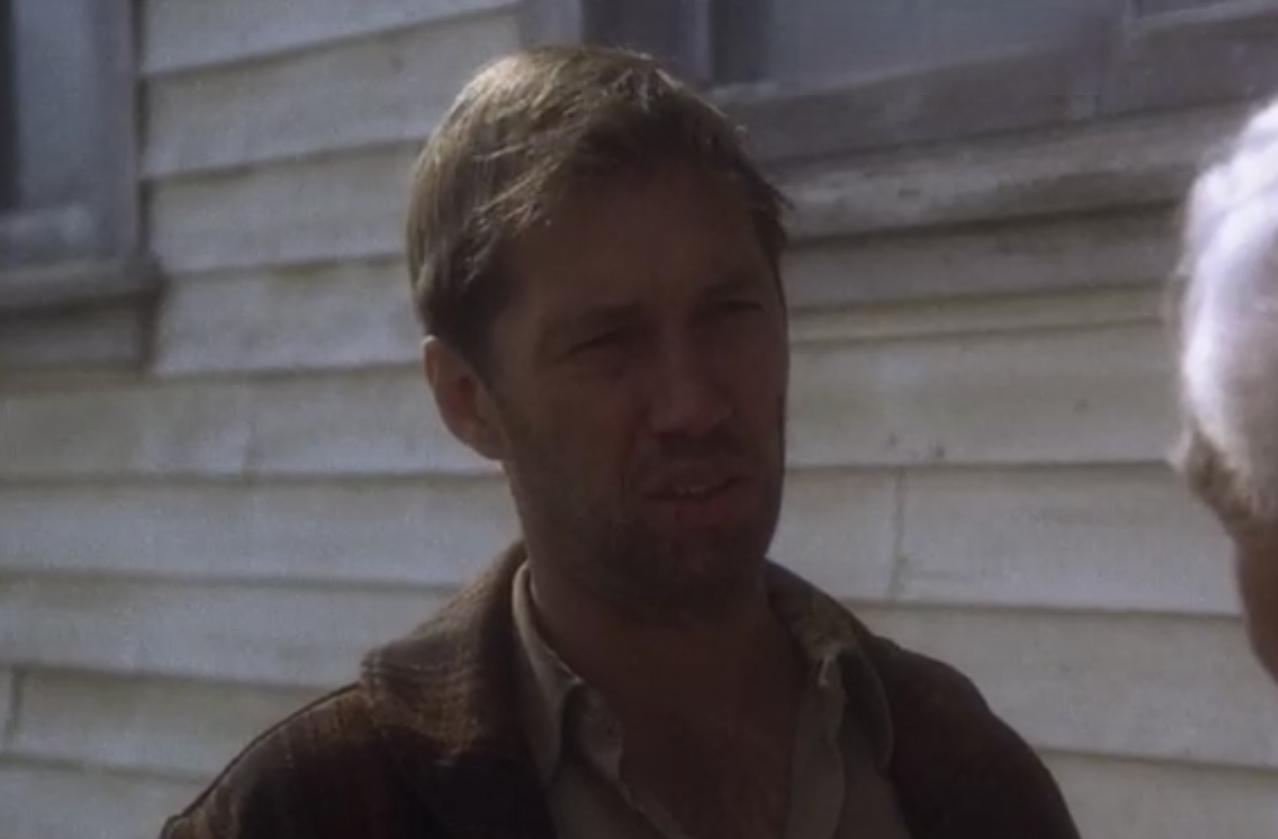 Bound for Glory, Bound for Glory (1976)
Bound for Glory, Bound for Glory (1976)
45. He Had Another Close Call
Guthrie was aboard the SS Sea Porpoise in the English Channel when it was torpedoed by a German submarine, wounding 12 men. The ship stayed afloat and made it back to port, but Guthrie’s time in the Merchant Marine was coming to an end.
 http://www.navsource.org/archives/08/08172.htm, Wikimedia Commons
http://www.navsource.org/archives/08/08172.htm, Wikimedia Commons
46. They Stuck Him In The Army
Unhappy with Guthrie’s communist politics, the US government had him transferred to the Army. Serving in the New York area for the remainder of WWII, Private Guthrie managed to stay out of trouble. With the conflict finally over, Guthrie had every reason to be hopeful about his future.
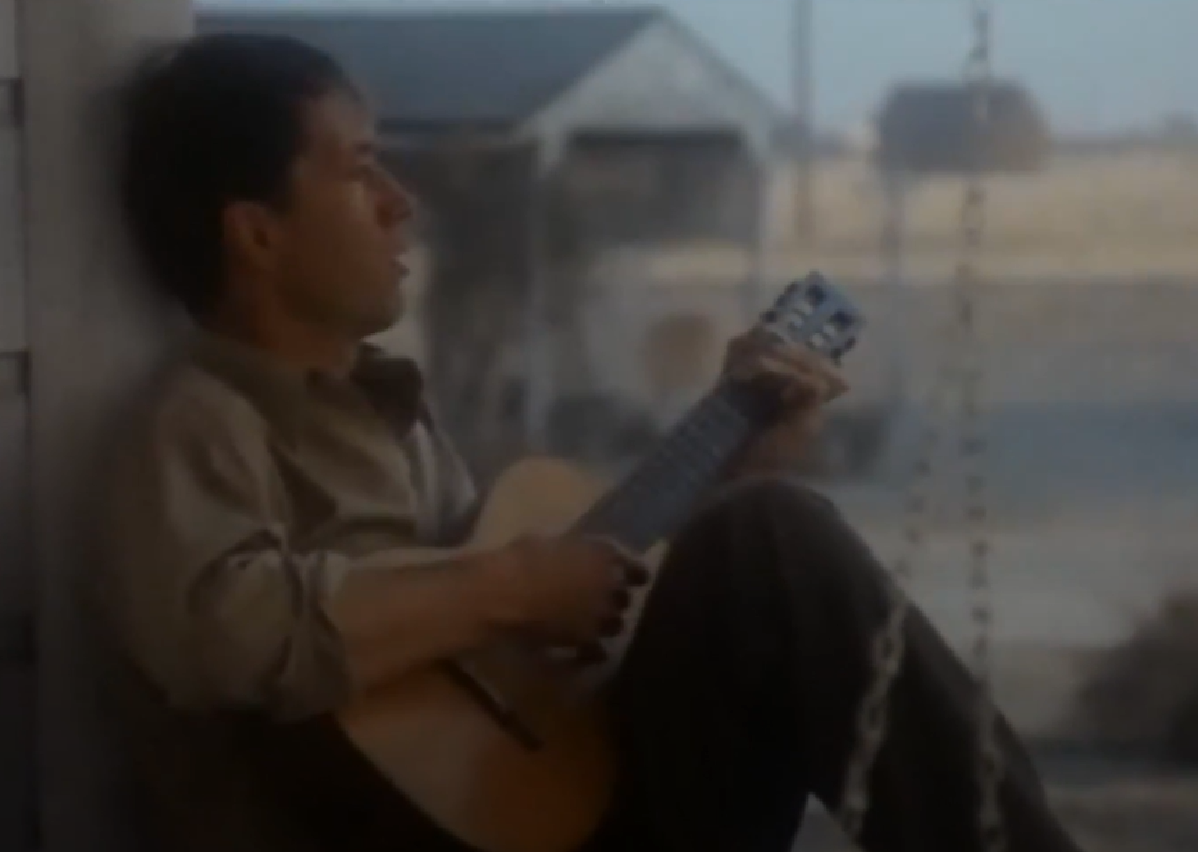 Bound for Glory, Bound for Glory (1976)
Bound for Glory, Bound for Glory (1976)
47. They Looked To The Future
While on furlough from the Army, Guthrie had married Marjorie. With their daughter Cathy Ann already two years old, Marjorie had moved into an apartment on Mermaid Avenue on Coney Island, where Guthrie would join them in their new home. The rambling man had finally decided to settle down.
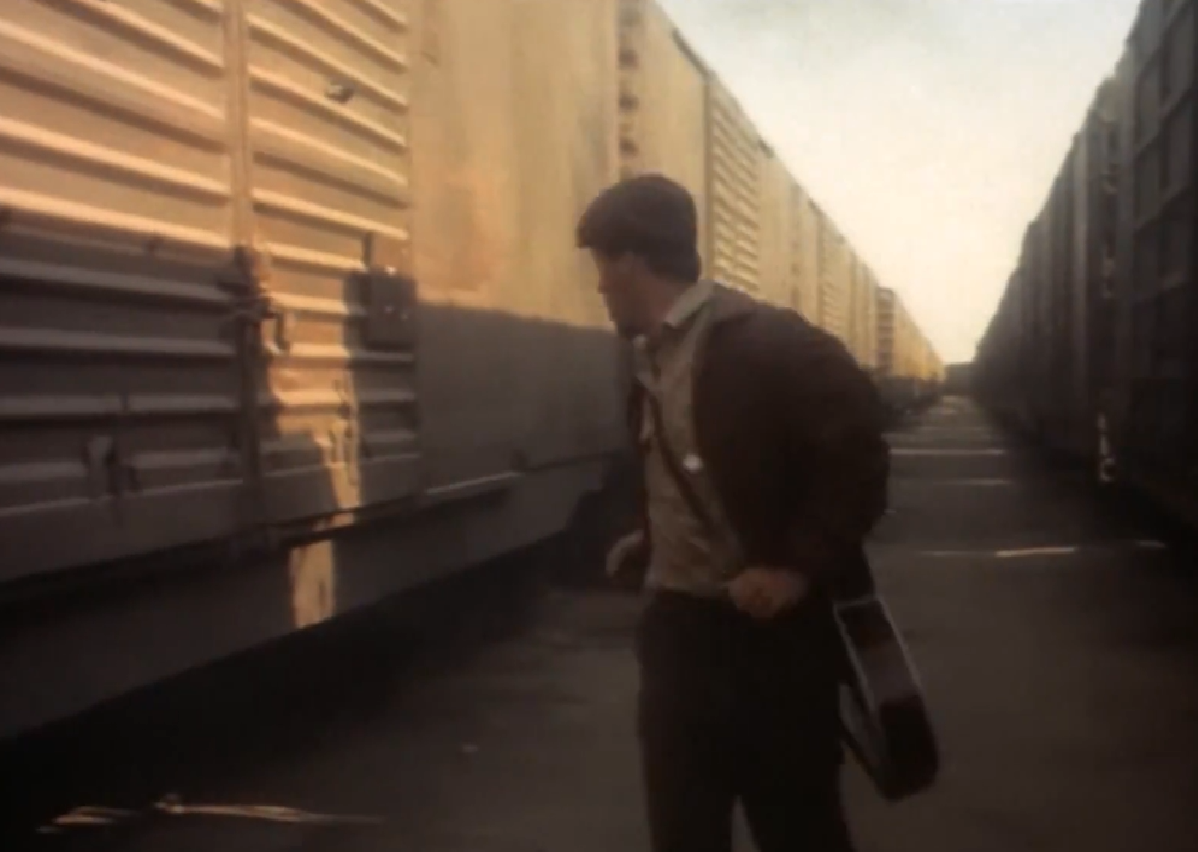 Bound for Glory, Bound for Glory (1976)
Bound for Glory, Bound for Glory (1976)
48. They Lived On Mermaid Avenue
It didn’t take Guthrie long to move into their Mermaid Avenue home. Aside from his guitar and typewriter, his belongings barely filled one clothing drawer. Guthrie spent most of his time writing songs for Cathy Ann and taking care of her while Marjorie gave lessons at her thriving dance studio. Guthrie was happier than he’d ever been, but his peace wouldn’t last.
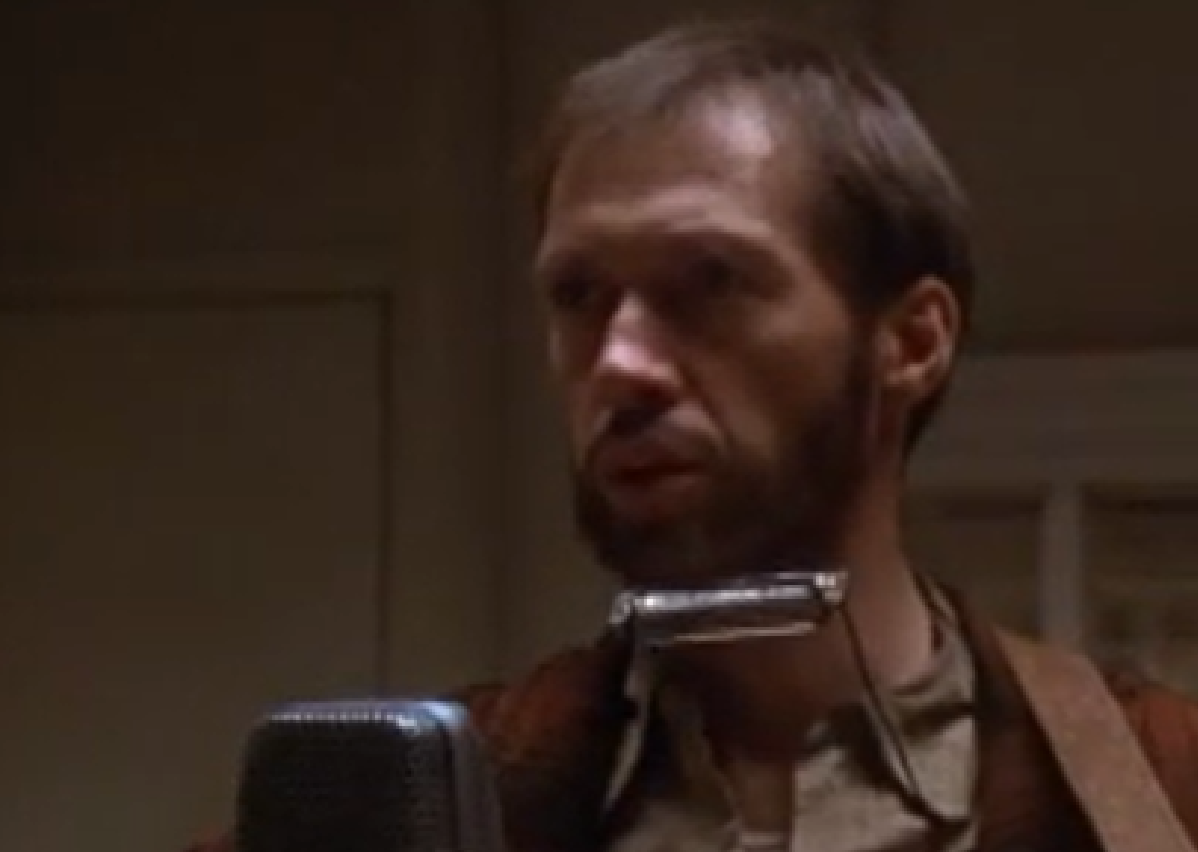 Bound for Glory, Bound for Glory (1976)
Bound for Glory, Bound for Glory (1976)
49. He Lost His Daughter
The fire was later blamed on a short circuit in the wiring of a radio. By the time neighbors arrived to help, it was already too late to rescue Cathy Ann from the flames that engulfed her bed. Cathy Ann Guthrie wouldn’t make it. She was four years old. The devastated couple tried to find a way to push forward.
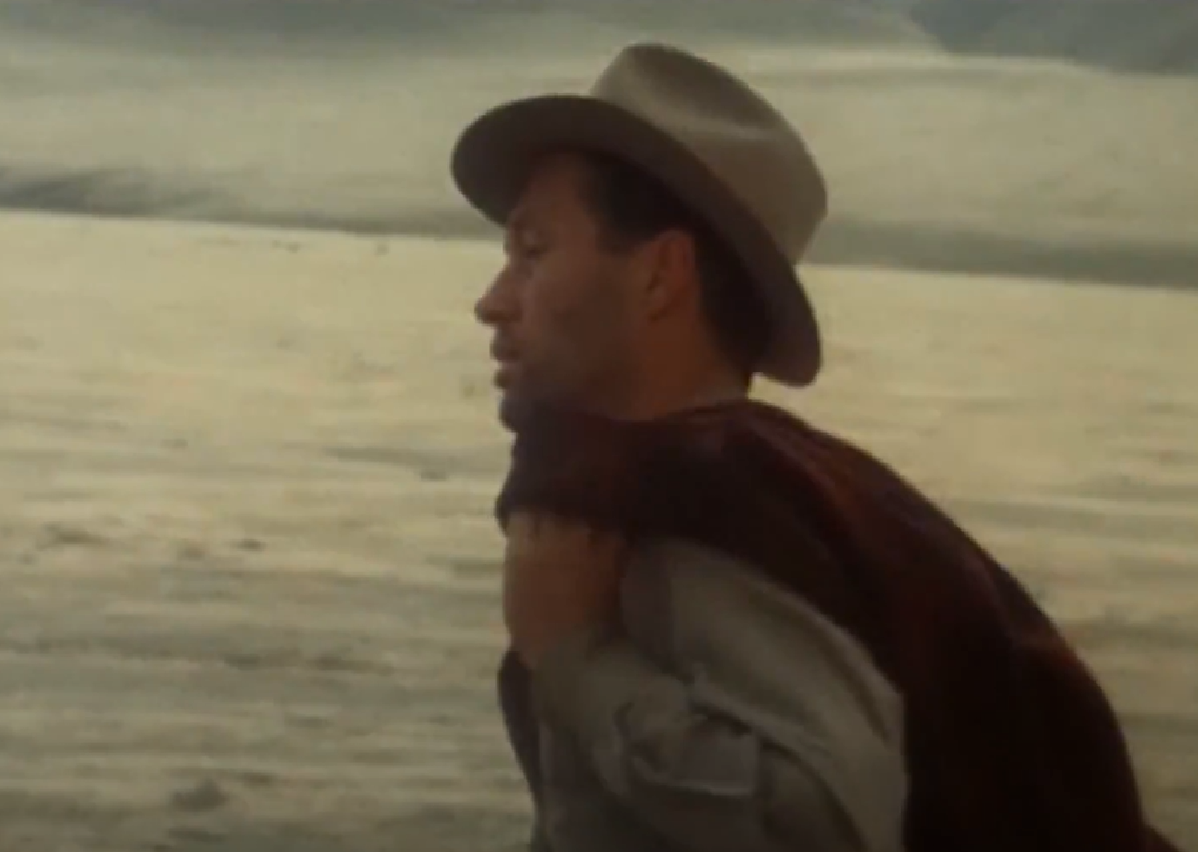 Bound for Glory, Bound for Glory (1976)
Bound for Glory, Bound for Glory (1976)
50. He Wrote Up A Storm
Guthrie and Marjorie had three more kids from 1947 to 1950: Arlo, Joady, and Nora. Guthrie also kept himself busy writing and recording. His output in these years included stories, poetry, and hundreds of songs. He was also a popular guest performer for benefit concerts. As the decade of the 1940s wound down, Guthrie had a pleasant surprise.
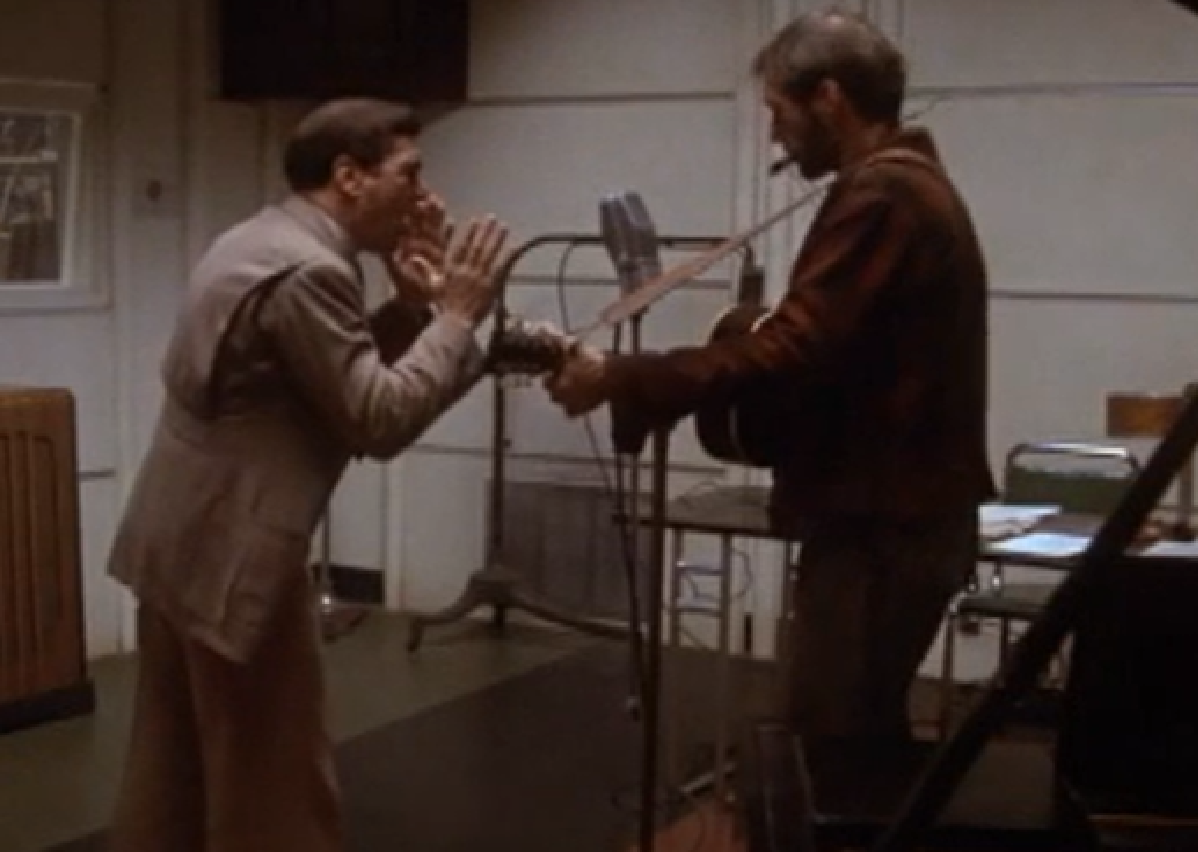 Bound for Glory, Bound for Glory (1976)
Bound for Glory, Bound for Glory (1976)
51. He Had An Understudy
Guthrie discovered that he had many fans in the younger generation. One of these was Ramblin’ Jack Elliott, who not only idolized Guthrie, but was determined to learn his guitar playing and performing styles. Staying with the Guthries for weeks, Elliott mastered the Guthrie sound and would help influence many other folk musicians down the line.
 K8 fan, CC BY-SA 3.0, Wikimedia Commons
K8 fan, CC BY-SA 3.0, Wikimedia Commons
52. He Was Acting Strangely
Guthrie had always been a non-conformist, but his family could tell something was terribly wrong. He began to have trouble concentrating on what he was doing, flew off the handle easily, and said things that made no sense at all. While his friends and family wondered what was going on, doctors took a closer look.
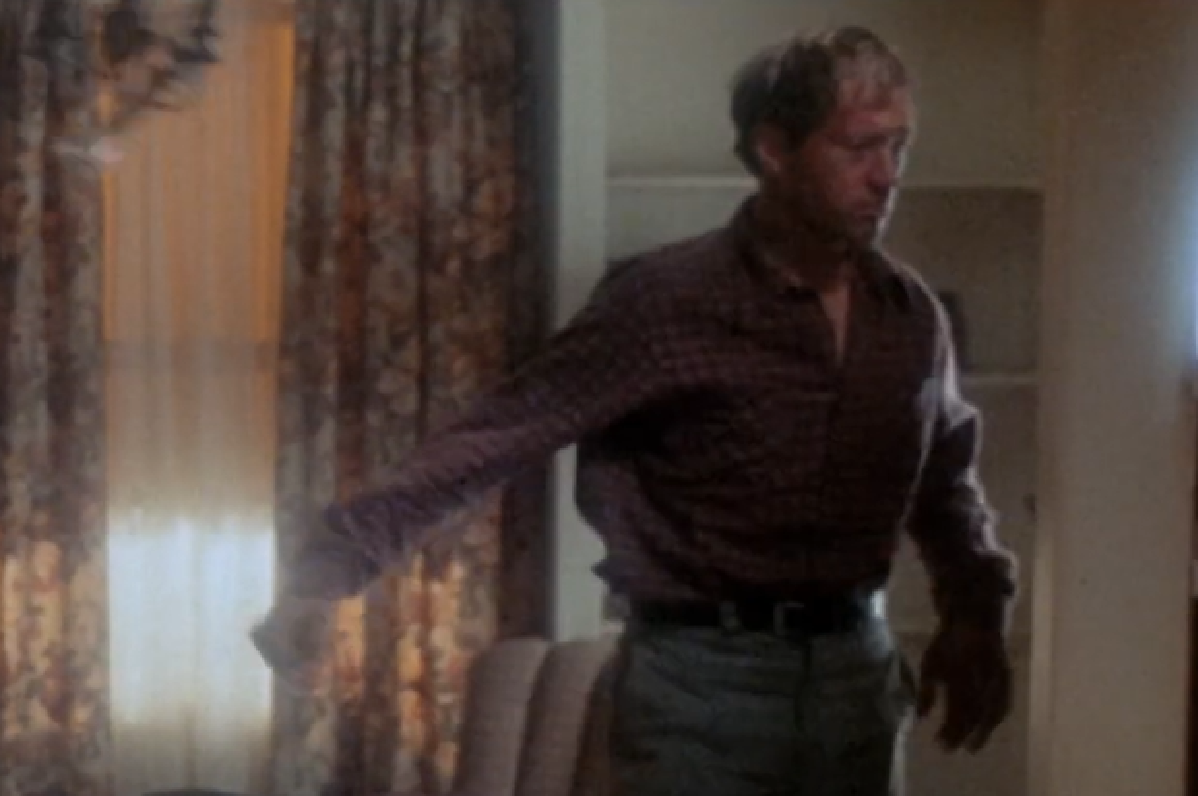 Bound for Glory, Bound for Glory (1976)
Bound for Glory, Bound for Glory (1976)
53. They Couldn’t Figure Out What Was Wrong
Doctors tried to nail down the cause of Guthrie’s increasingly erratic behavior. Alcoholism and schizophrenia were ruled out when Guthrie made a couple of brief stints in New York psychiatric hospitals. It was during his stay at Brooklyn State Hospital that Guthrie and his family at last got some answers.
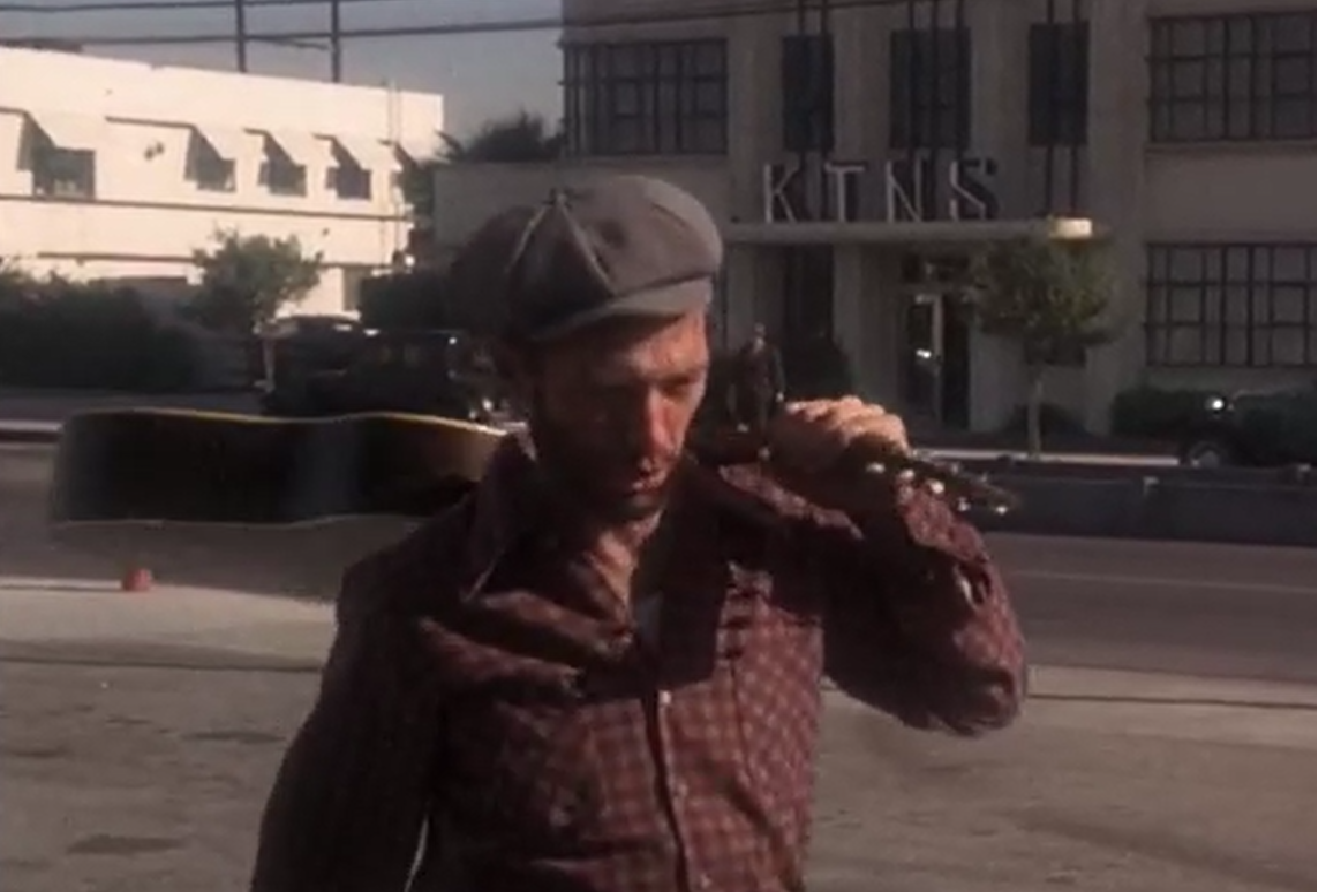 Bound for Glory, Bound for Glory (1976)
Bound for Glory, Bound for Glory (1976)
54. He Got The Diagnosis
Doctors finally diagnosed Guthrie with Huntington’s disease, the same degenerative disorder that claimed the life of his mother decades earlier. The whole thing made sense now. But knowing all too well the symptoms that were to ensue, Guthrie struggled to accept the grim news.
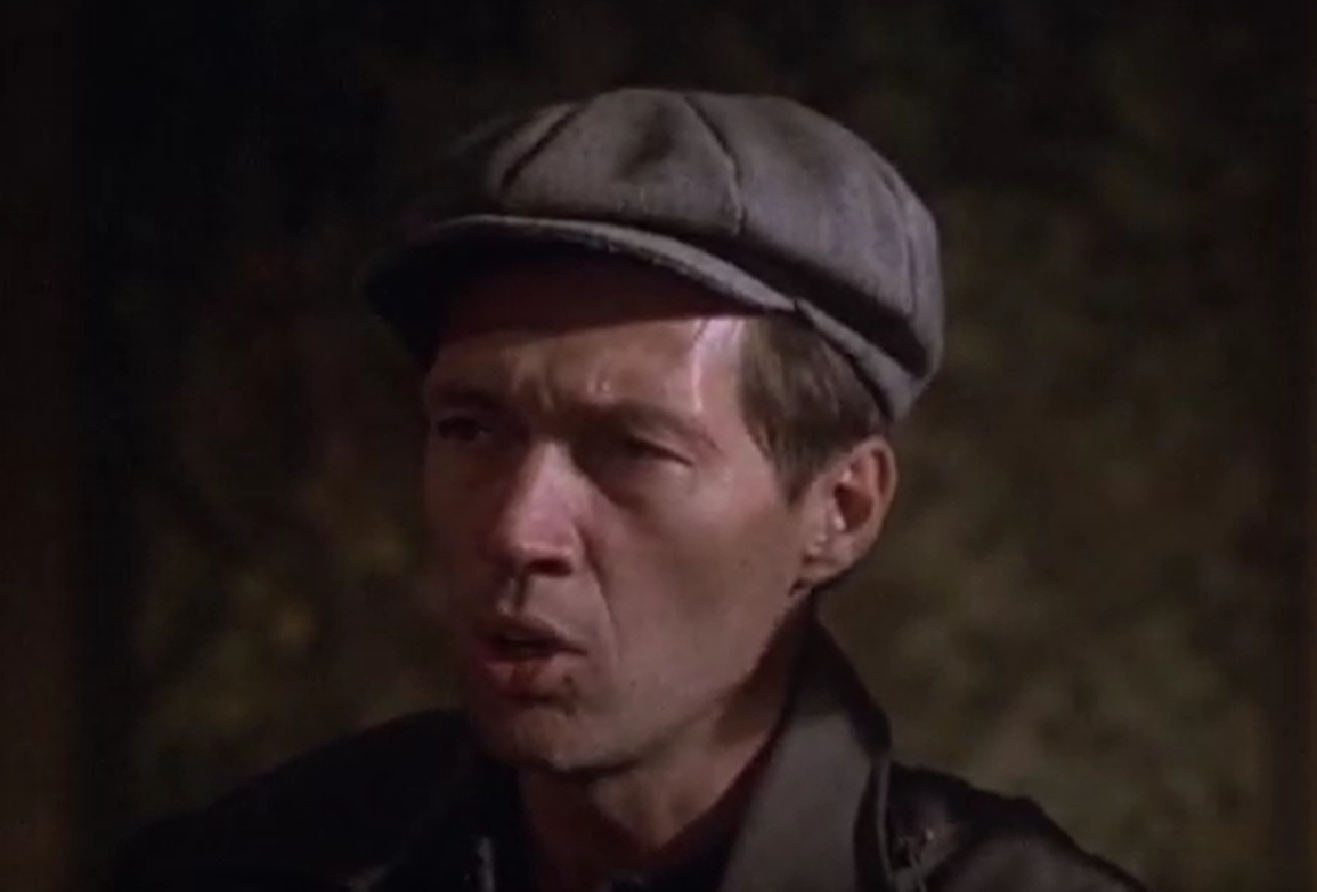 Bound for Glory, Bound for Glory (1976)
Bound for Glory, Bound for Glory (1976)
55. They Couldn’t Be Around Him
Longing to escape the confines of institutions, Guthrie began to take hitchhiking trips around the country. But Guthrie’s love for life on the road, along with the degenerative effects of his illness, made it impossible for him to be a proper husband and father. Marjorie asked for a separation. Guthrie again headed out to the greener pastures of California.
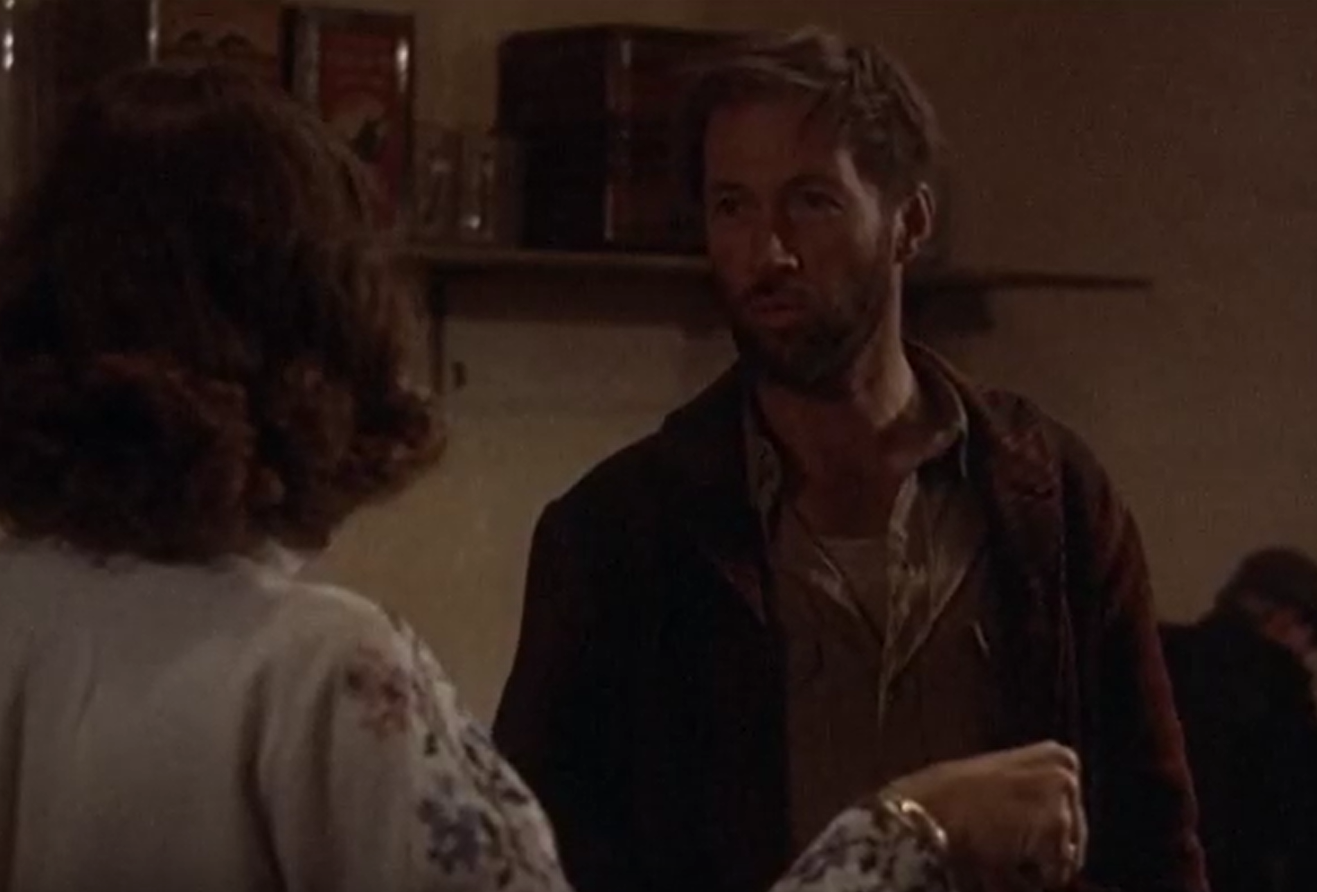 Bound for Glory, Bound for Glory (1976)
Bound for Glory, Bound for Glory (1976)
56. He Went Back To California
Guthrie went to stay with his old friend, actor Will Geer. After being blacklisted in Hollywood for his leftist views, Geer had sold his home and bought some land in rural California. The property was a haven for blacklisted actors trying to lay low during the anti-communist hysteria of the 1950s. Guthrie lived in a small shack on the property, but even there he attracted unwelcome scrutiny.
 Federal Theatre Project, Wikimedia Commons
Federal Theatre Project, Wikimedia Commons
57. They Backed Off
The FBI had long kept a file on Guthrie. Amid the anti-communist uproar in the country, they took another look at the radical folk musician. Finding that Guthrie had never joined the Communist Party, and seeing his declining health, the Bureau decided not to investigate him further—but that doesn't mean he was squeaky clean (more on that later). Unaware that the agency was snooping around, Guthrie found love again.
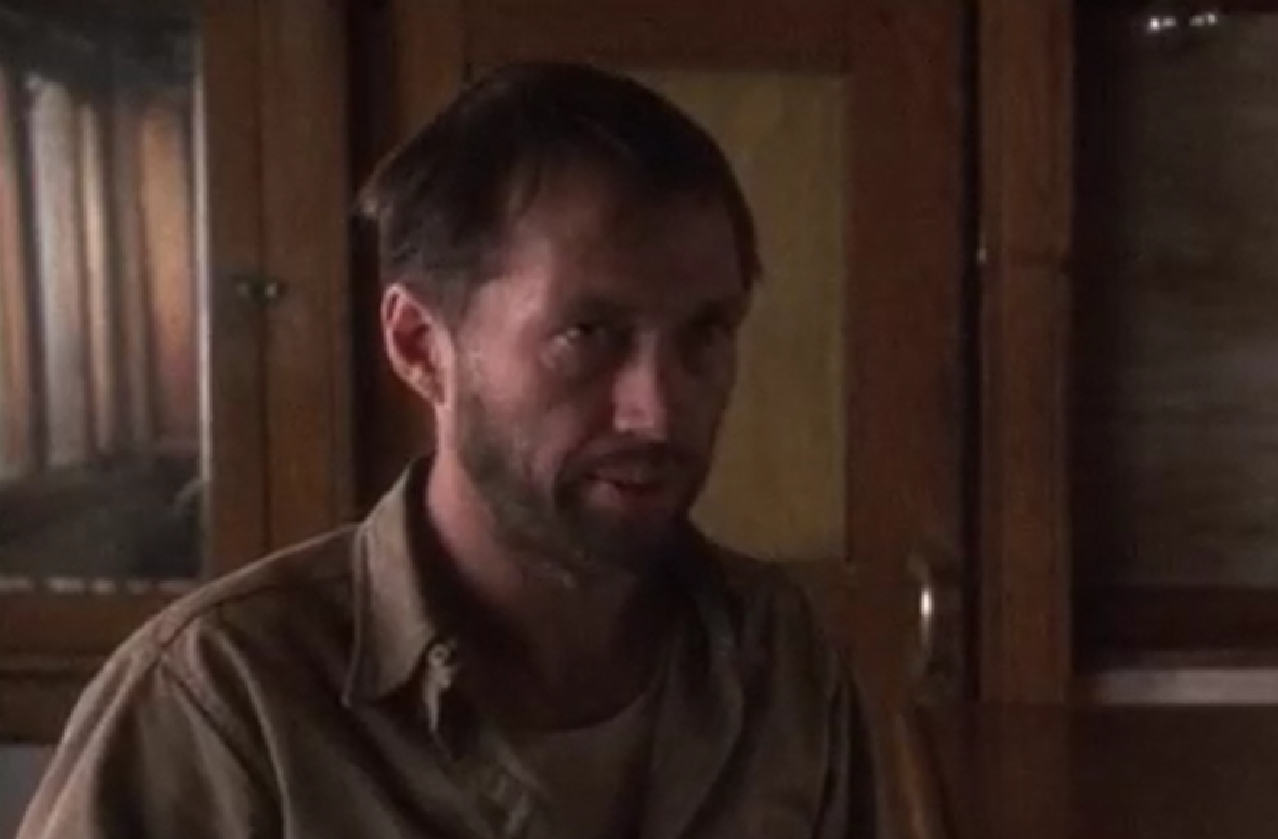 Bound for Glory, Bound for Glory (1976)
Bound for Glory, Bound for Glory (1976)
58. He Started Over
Guthrie had met a 20-year-old art student named Anneke Van Kirk during his time staying at Geer’s California refuge. The two quickly evolved from fellow political misfits to lovers. Van Kirk left her husband to be with Guthrie. With Guthrie convinced that they needed a fresh start together, the pair hit the road.
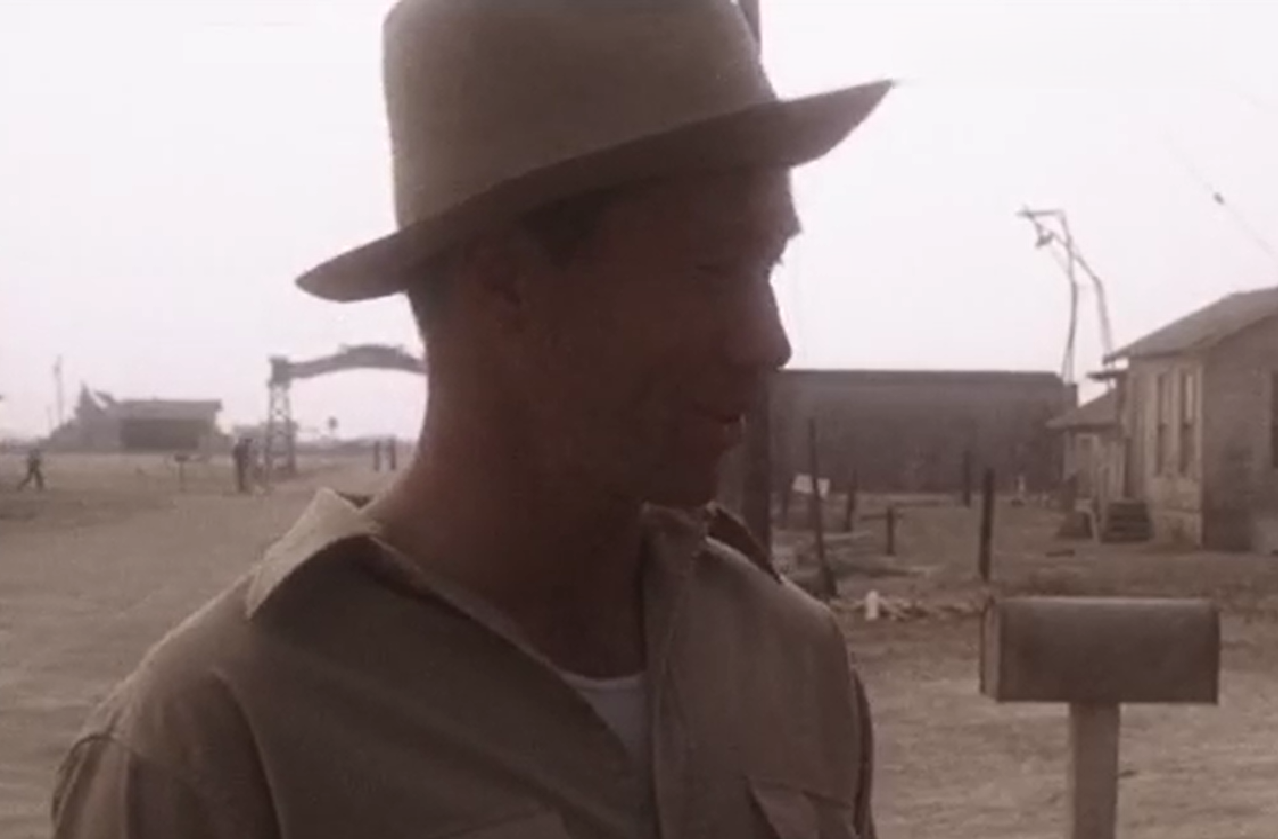 Bound for Glory, Bound for Glory (1976)
Bound for Glory, Bound for Glory (1976)
59. They Found Another Refuge
Guthrie and Van Kirk stayed in Florida for a few months on the property of anti-racist activist Stetson Kennedy. Living in a converted bus on the property, Guthrie was able to finish an autobiographical novel about his Pampa, Texas experiences called The Seeds of Man. But Guthrie’s attempt at a fresh start wasn’t going well.
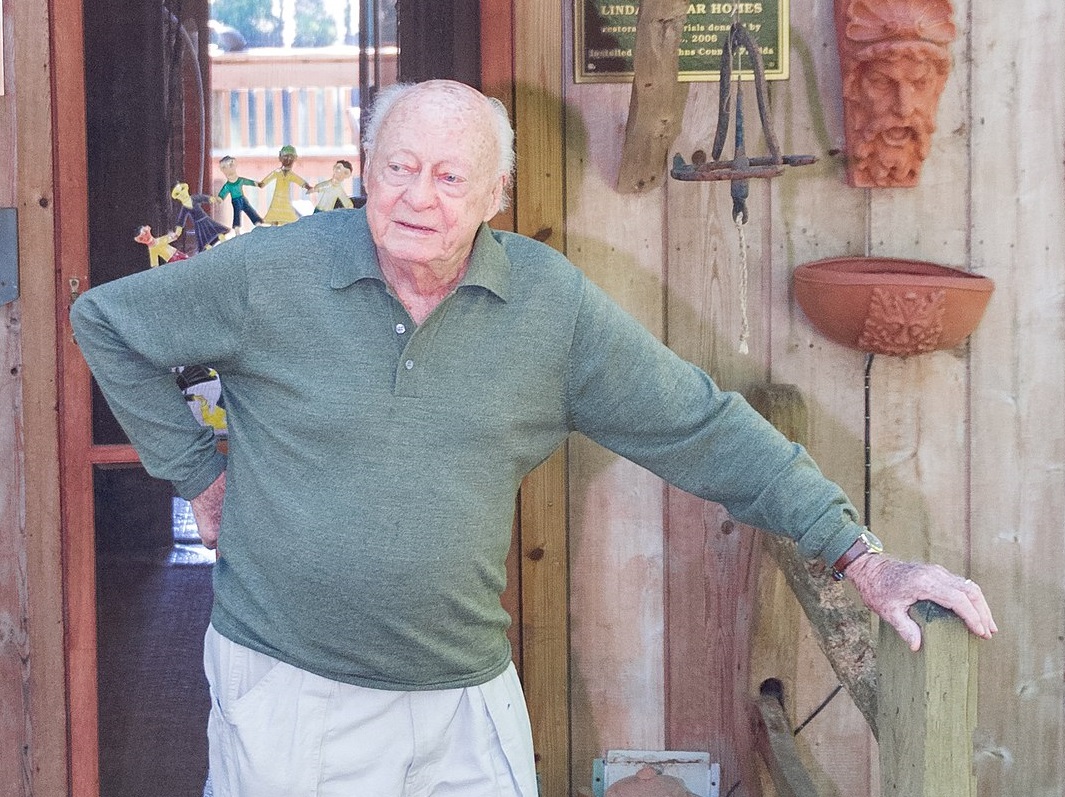 DonKeeton, CC BY-SA 4.0, Wikimedia Commons
DonKeeton, CC BY-SA 4.0, Wikimedia Commons
60. He Wrecked His Arm
Once again, fire would play a tragic role in Guthrie’s life. A gas can that they used for starting campfires exploded, badly burning Guthrie’s arm. He eventually regained use of the limb, but his guitar-playing days were done. In the aftermath of this setback, Guthrie and Van Kirk decided it was time to get back on the road once more.
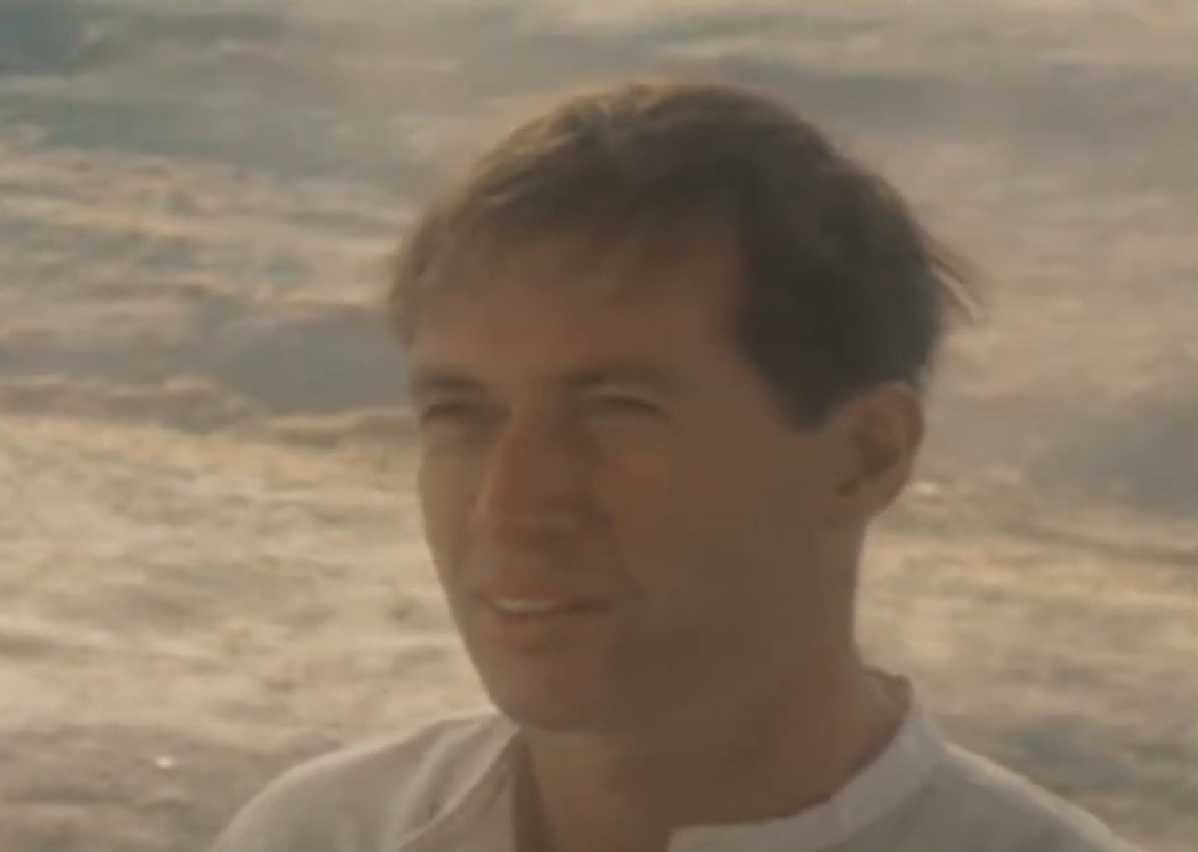 Bound for Glory, Bound for Glory (1976)
Bound for Glory, Bound for Glory (1976)
61. They Moved To New York
With Van Kirk now expecting their baby, the couple looked for a more stable living situation. Guthrie and Van Kirk moved back to New York City in January 1954, stopping along the way to get married. Van Kirk gave birth to the couple’s first child, Lorina, later that year. The new family had no shortage of challenges, but Guthrie had also found a source for a new burst of songwriting.
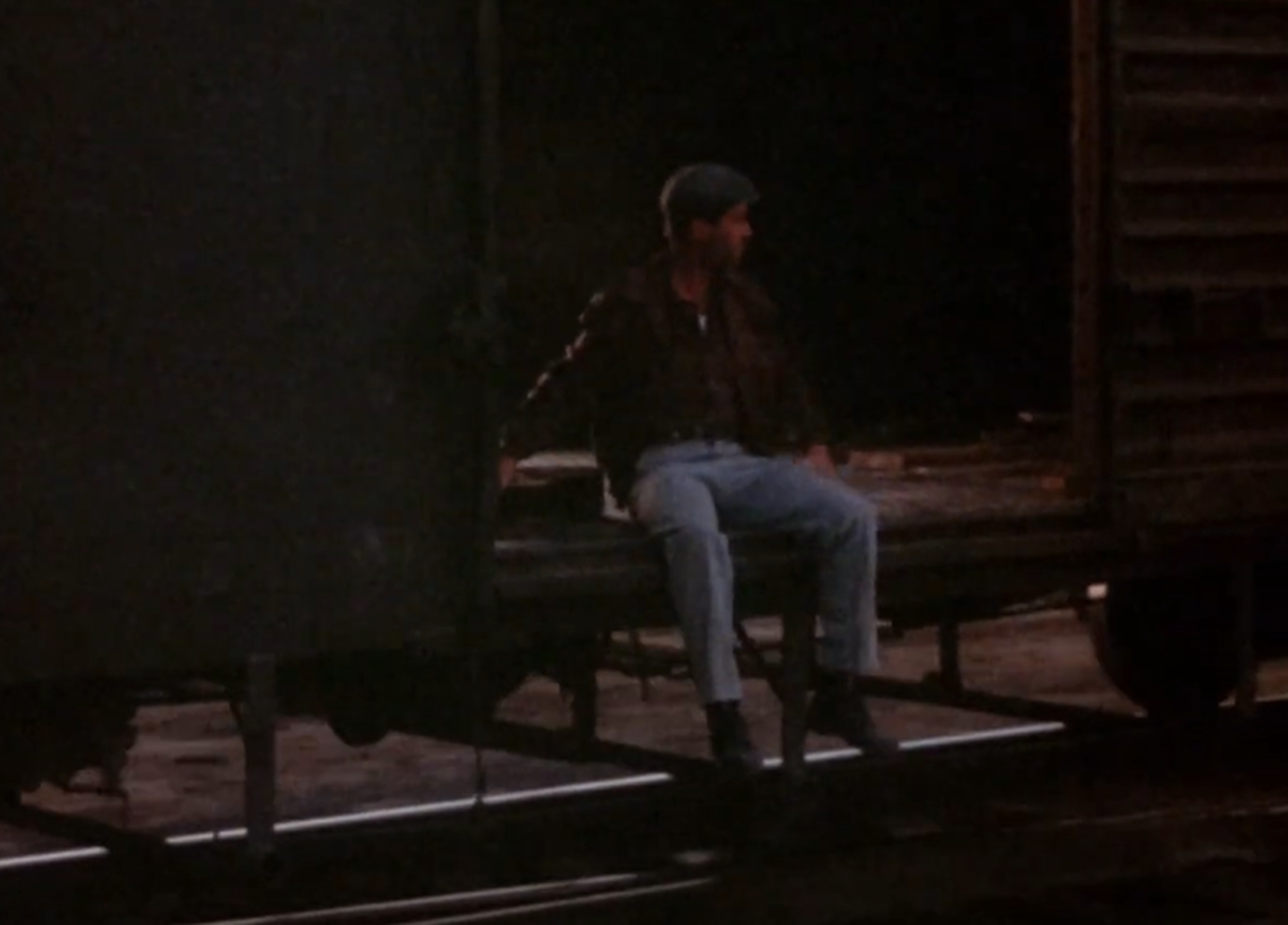 Bound for Glory, Bound for Glory (1976)
Bound for Glory, Bound for Glory (1976)
62. He Wanted To Dump Trump
The Guthries leased their Beach Haven apartment in Brooklyn from Fred Trump, father of future US president Donald Trump. Guthrie wrote the song “Old Man Trump” in 1954 in protest against the elder Trump’s discriminatory rental practices and housing policies. Those policies would eventually be the subject of a federal lawsuit. Though Guthrie created a set of lyrics for the song, he was unable to record it due to his growing health issues.
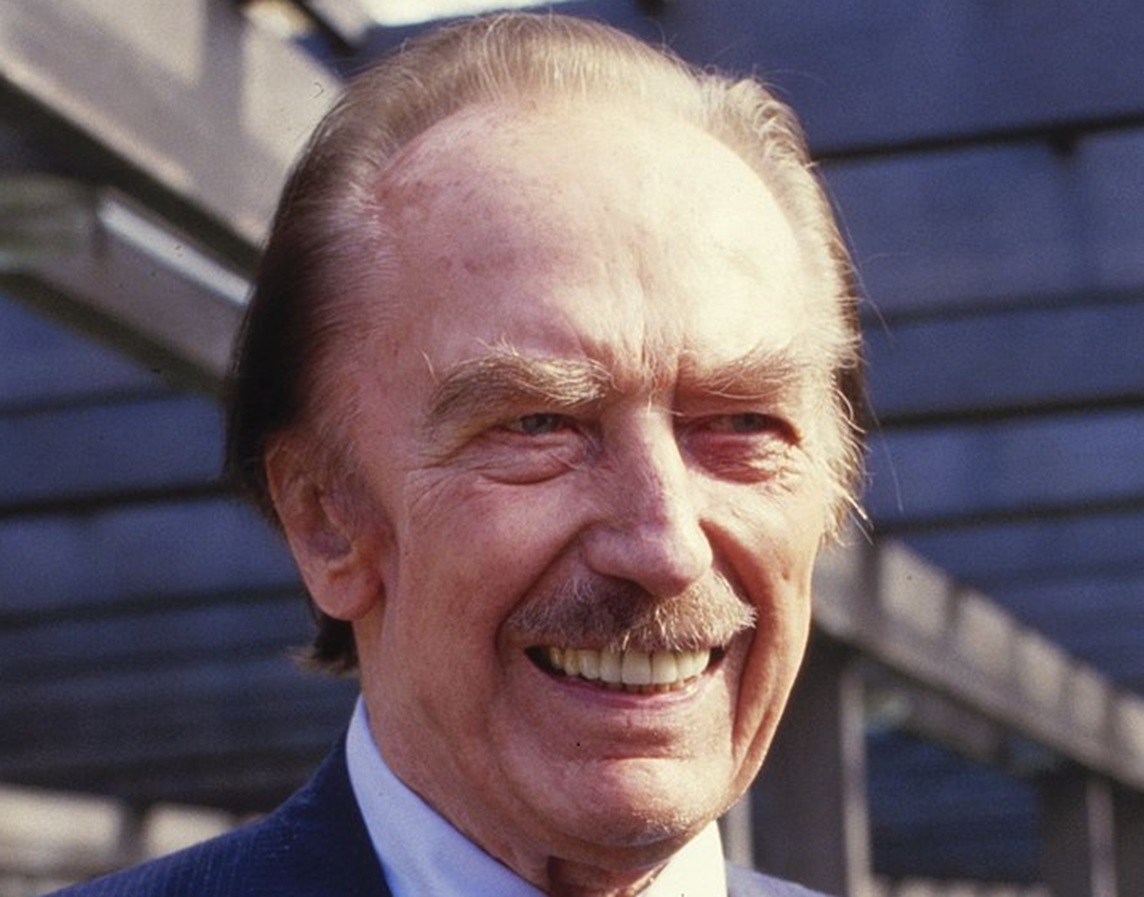 Gotfryd, Bernard, Wikimedia Commons
Gotfryd, Bernard, Wikimedia Commons
63. His Challenges Grew
Guthrie fought hard to maintain his independence and creativity long past the point when others would’ve called it quits. But Huntington’s had tightened its merciless grip on him. Increasingly volatile, he was lashing out at those around him. Unable to deny the terrible truth any longer, Guthrie checked himself back into Brooklyn State Hospital. He was still allowed weekend passes, but the heartbreak wasn’t over yet.
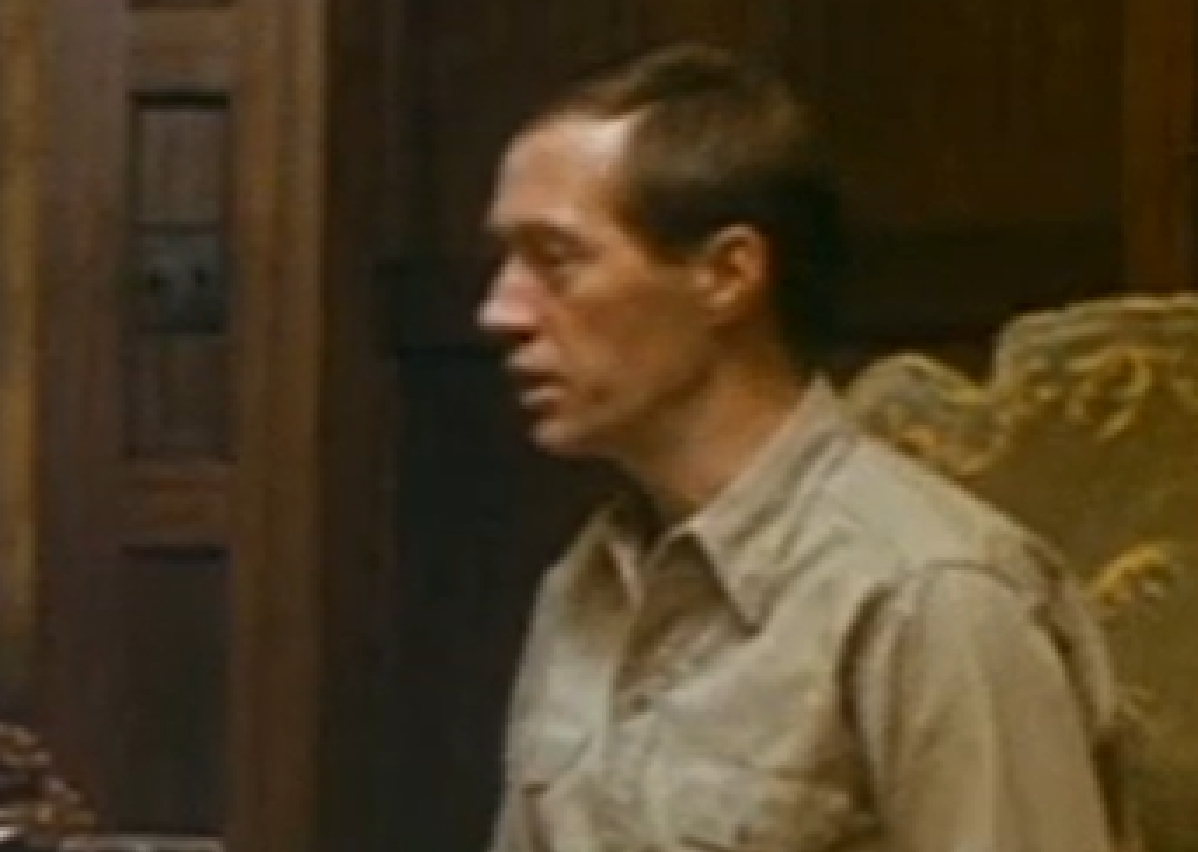 Bound for Glory, Bound for Glory (1976)
Bound for Glory, Bound for Glory (1976)
64. He Lost His New Family
Guthrie’s young wife, Anneke Van Kirk, was unable to care for him or deal with his problems. She divorced him, and would soon give their child Lorina up for adoption. Though his new family had fallen apart and he was unable to look after himself, Guthrie still had those who loved him deeply.
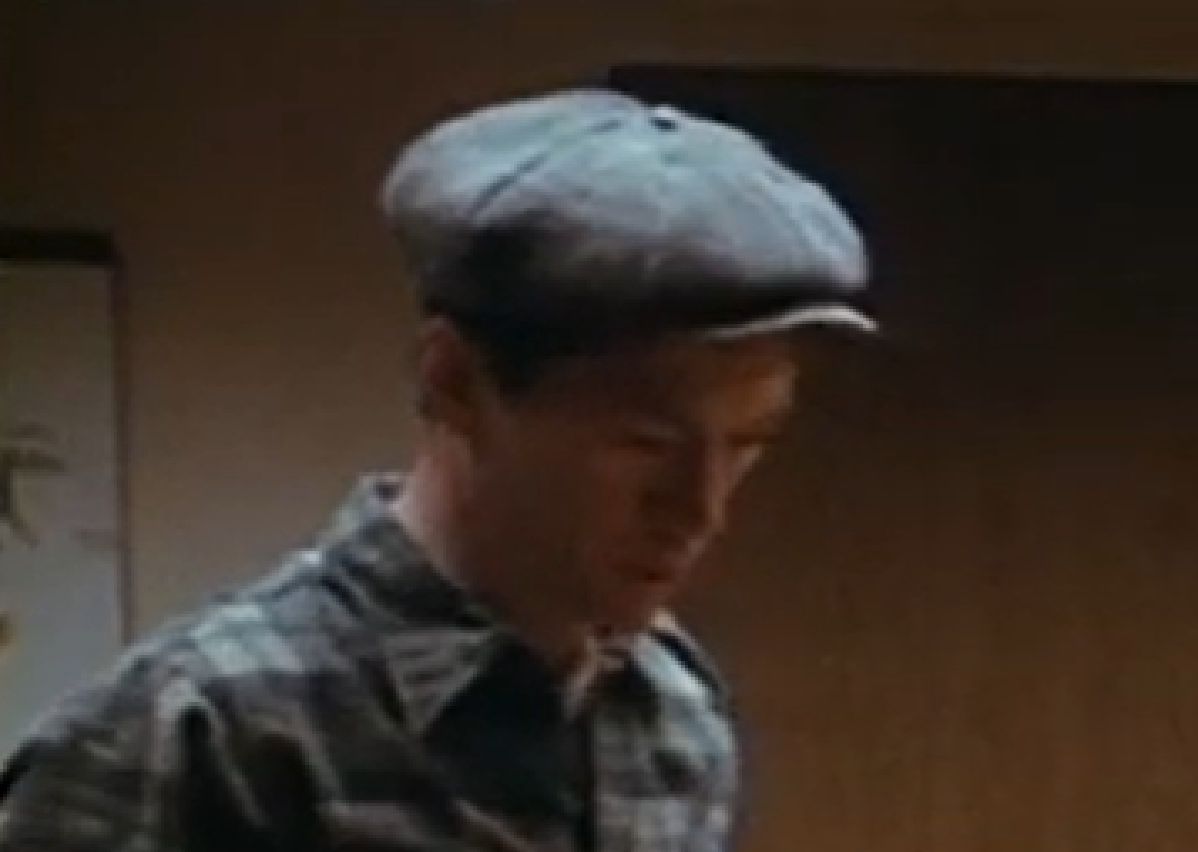 Bound for Glory, Bound for Glory (1976)
Bound for Glory, Bound for Glory (1976)
65. She Looked After Him
Guthrie still had his weekend getaways from Brooklyn State Hospital, and he spent this precious free time with his ex-wife Marjorie. As Guthrie’s condition went downhill, she would continue to care for him and visit him regularly. But Guthrie was still restless to be on the road.
66. He Was Transferred
While hitchhiking through New Jersey during a weekend pass in 1956, Guthrie was brought in by police for vagrancy. He was involuntarily committed to nearby Greystone Park Hospital, where he would remain for the next five years. But though it seemed Guthrie’s career was over, it was only entering a new chapter.
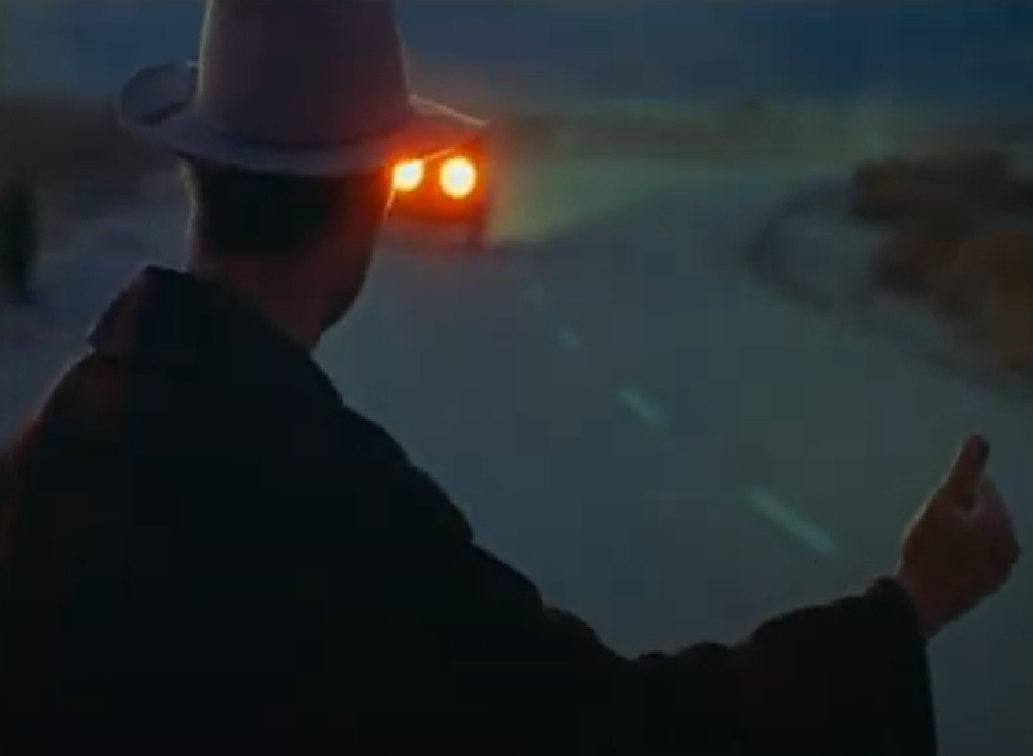 Bound for Glory, Bound for Glory (1976)
Bound for Glory, Bound for Glory (1976)
67. His Admirers Were Legion
Guthrie’s music was more popular than ever. Thanks to folk groups like The Weavers and Kingston Trio, his songs had been introduced to a new generation of fans. Younger artists like Bob Dylan sought Guthrie out and visited him frequently. But Guthrie himself was far from finished writing.
 Leacock-Pennebaker, Bob Dylan: Dont Look Back (1967)
Leacock-Pennebaker, Bob Dylan: Dont Look Back (1967)
68. He Was Far From Finished
Guthrie transferred back to Brooklyn State Hospital in 1961 to be closer to Marjorie and their kids. All through this time, Guthrie still wrote prolifically, stayed physically active, and fought hard to maintain his mind and body. While he could no longer be the wild rambler of the open roads of America, he was still able to enjoy quality time with family and friends as the end drew closer.
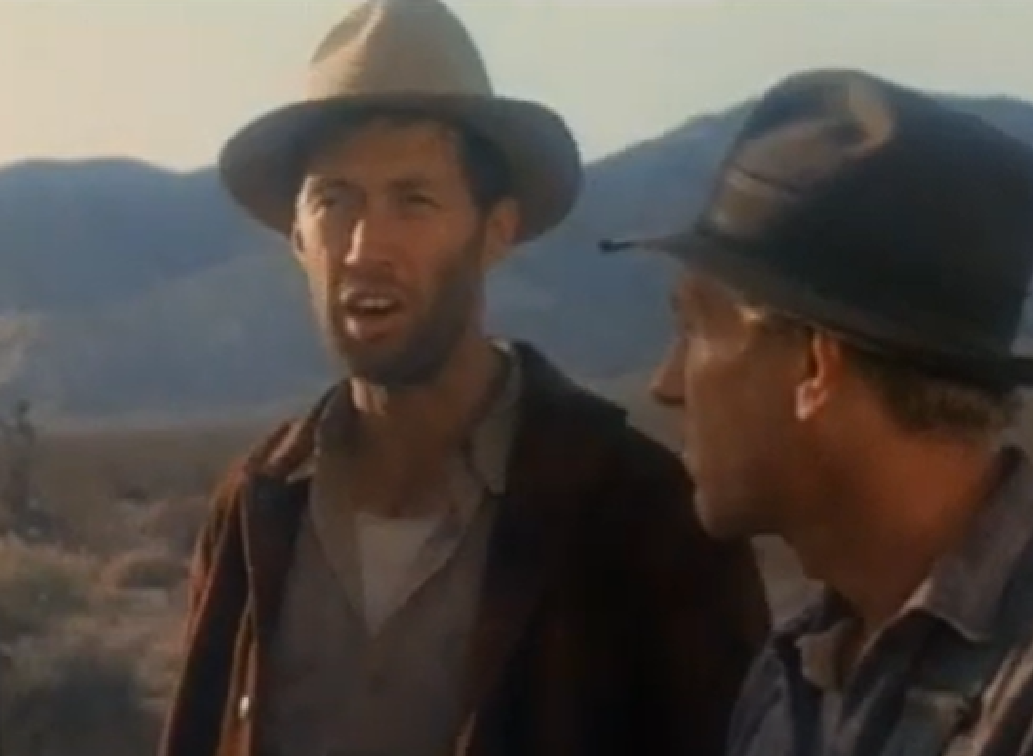 Bound for Glory, Bound for Glory (1976)
Bound for Glory, Bound for Glory (1976)
69. He Saw The End Was Near
Guthrie finally lost his struggle with Huntington’s on October 3, 1967. The hereditary disease would also claim the lives of his two daughters from his first marriage, Gwendolyn and Sue. His ex-wife Marjorie continued to educate others about Huntington’s Disease, and founded the Huntington’s Disease Society of America (HDSA). But the significance of Guthrie’s life would grow to become far bigger.
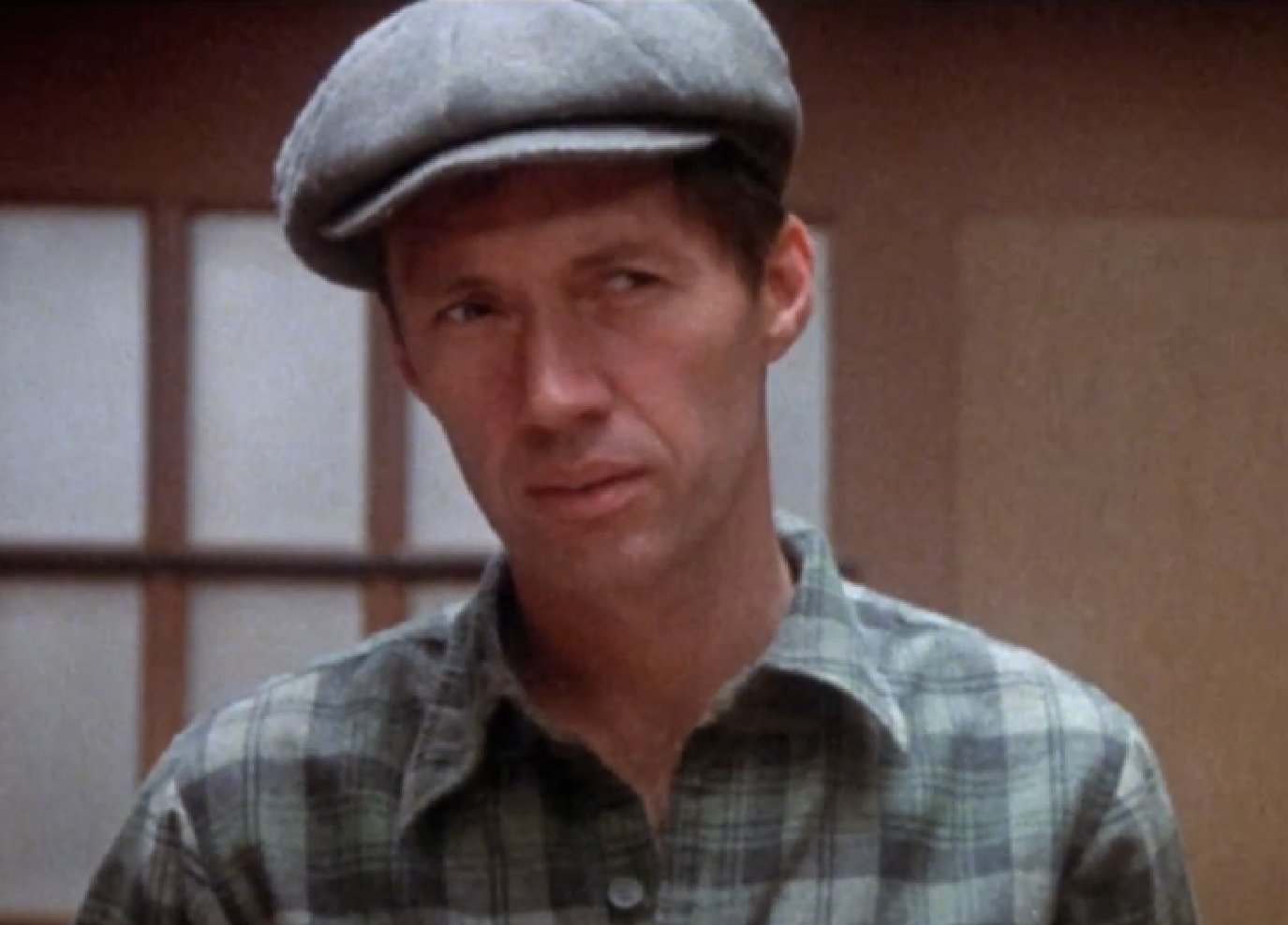 Bound for Glory, Bound for Glory (1976)
Bound for Glory, Bound for Glory (1976)
70. He Had Done It
After all his struggles, tragedies, and restless wanderings, he’d become one of the most influential singer-songwriters of all time. But there was more to the story than that. Woody Guthrie was a lifelong underdog, and his songs were an inspiration to dispossessed people struggling through some of the toughest times America has ever seen.
Some listeners rallied to his message of anti-fascism and working-class solidarity. Others found comfort in his incomparable storytelling ability, country accent, and infectious wit. Either way, the warmth, humanity, and integrity of his music left his listeners no doubt that he was always on their side in the struggle, right to the very end.
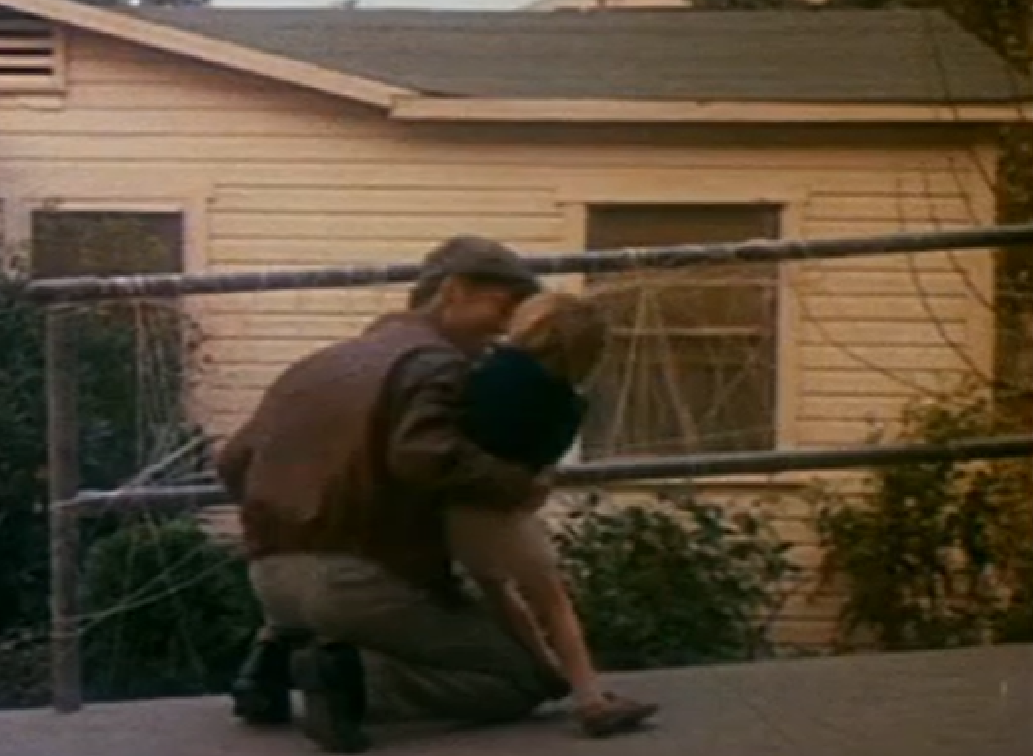 Bound for Glory, Bound for Glory (1976)
Bound for Glory, Bound for Glory (1976)
71. He Had Shady Connections
Remember how the FBI had been keeping tabs on Guthrie? Well, even though they never pursued a case against him, they did find that he kept some questionable company. Guthrie was friends with George Haggerty and Ramón Durem, two members of the Abraham Lincoln Brigade. The Lincoln Brigade was a group of Americans who fought during the Spanish Civil War against fascist Francisco Franco.
According to the FBI, the two veterans had turned from their patriotic duty in favor of communism, and were planning to help the Soviet Union if war broke out between the United States and the USSR.
Luckily, for Guthrie, he had no part in those plans and was so sickly that the Bureau decided he wasn't a threat.
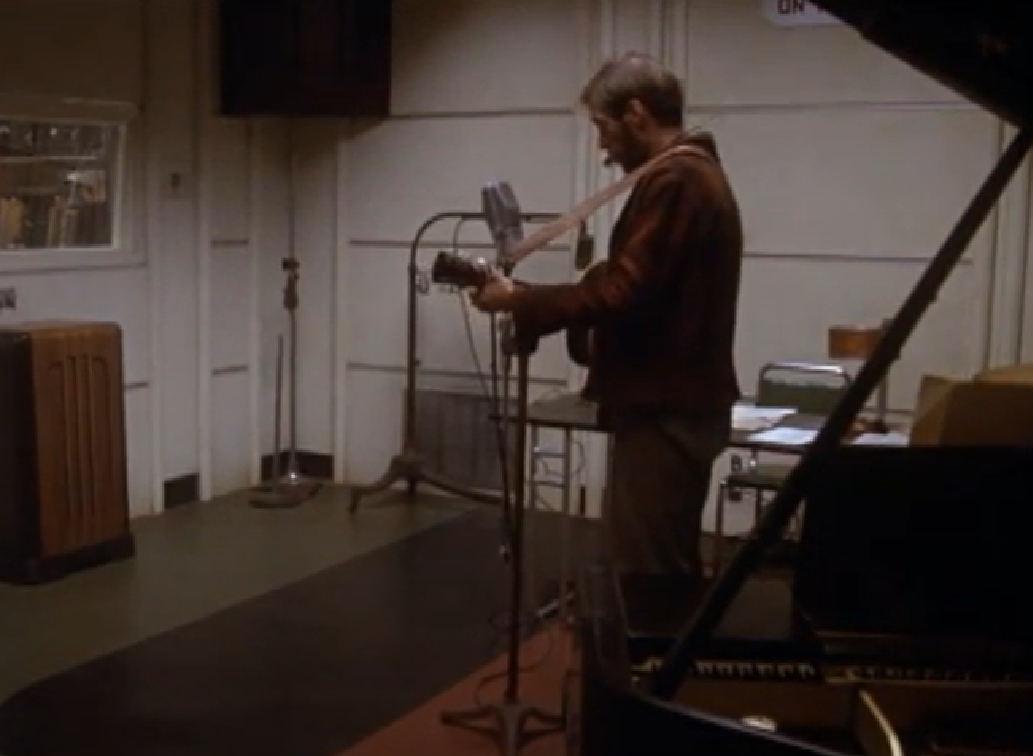 Bound for Glory, Bound for Glory (1976)
Bound for Glory, Bound for Glory (1976)

